Chileans in Britain
Hundreds of thousands of Chileans were forced into exile after the coup, with more than 3,000 settling in Britain. The Joint Working Group for Refugees from Chile (JWG), alongside the Chile Solidarity Campaign, the Chile Committee for Human Rights (CCHR), the World University Service (WUS) and Academics for Chile (AFC), campaigned to receive them. British families sponsored political prisoners via a scheme run by CCHR, facilitated by the JWG, and welcomed them into their homes when they arrived as refugees.
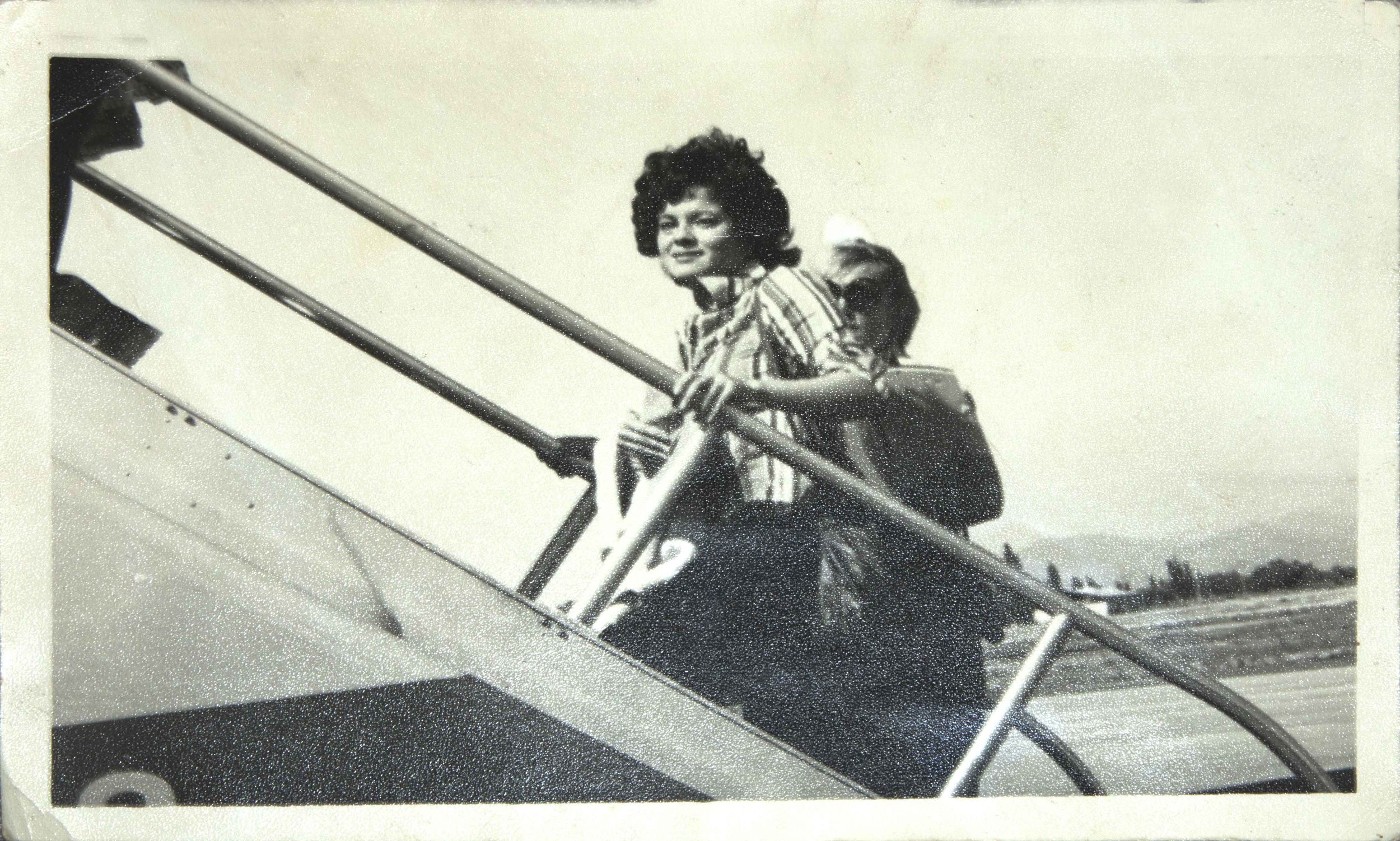
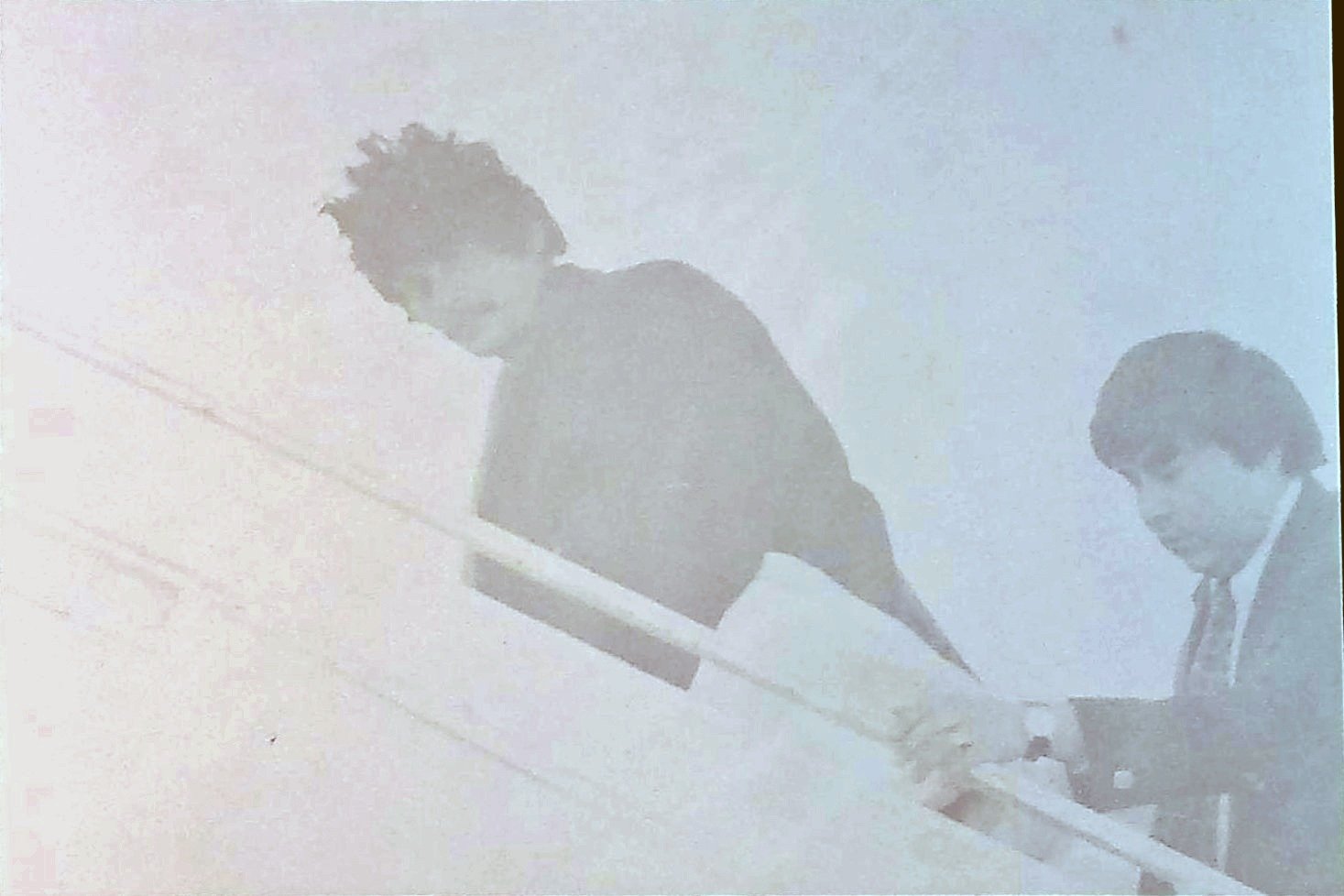
The Joint Working Group for Refugees from Chile (JWG)
The JWG was an organisation with charitable status set up in 1974 in response to the emergency created by the Chilean coup. It was financed by a grant from the Home Office until 1979 when the Conservative government stopped it and raised funds from trusts and individuals. It worked closely with other solidarity organisations to help Chileans secure visas, lobby the government for better conditions for refugees and help them adjust to life in Britain. Use the arrows below to scroll through one of their reports on refugees in Britain and see below for a short documentary film, “They Came in the Morning” the JWG made for the BBC in 1981.
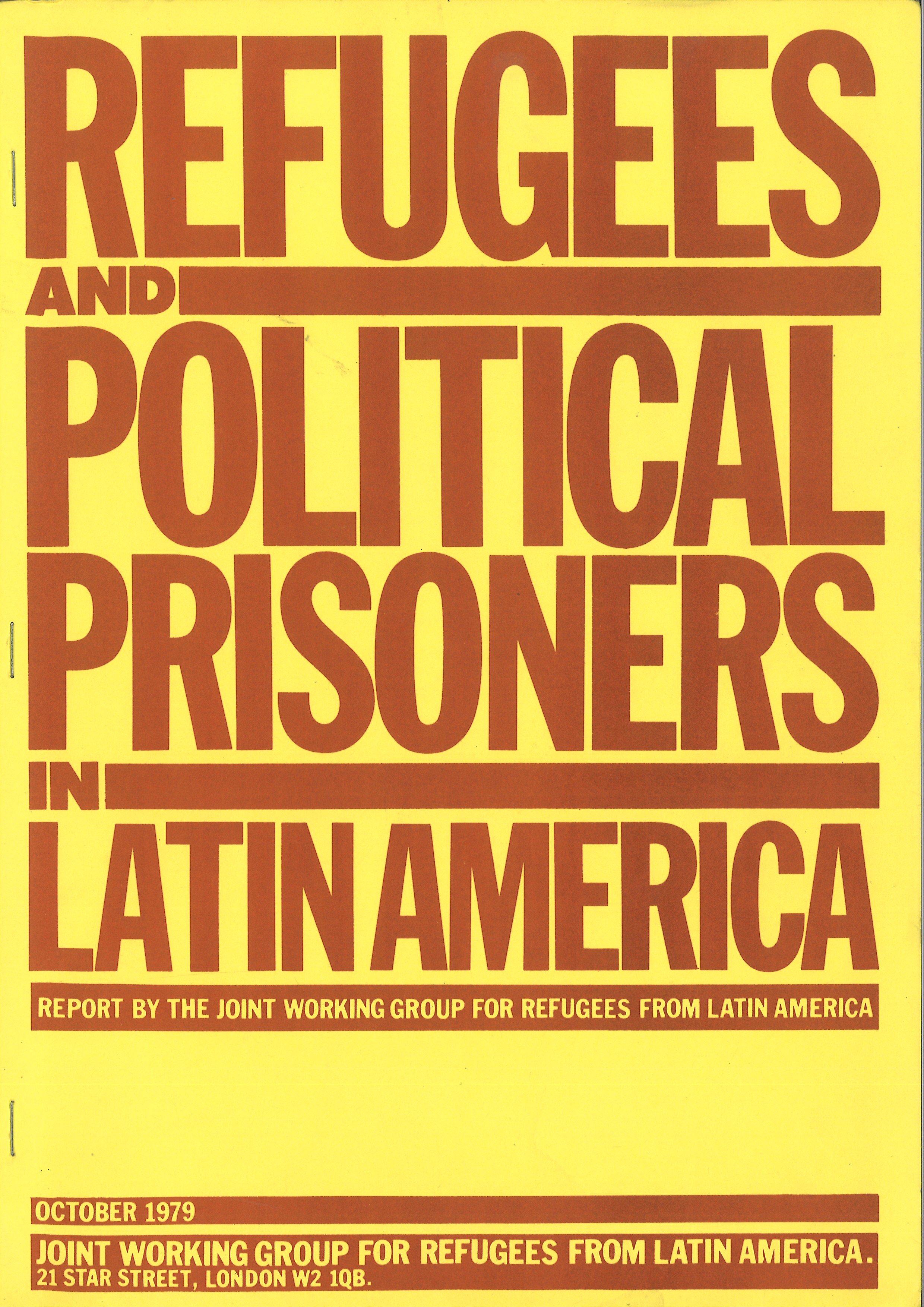
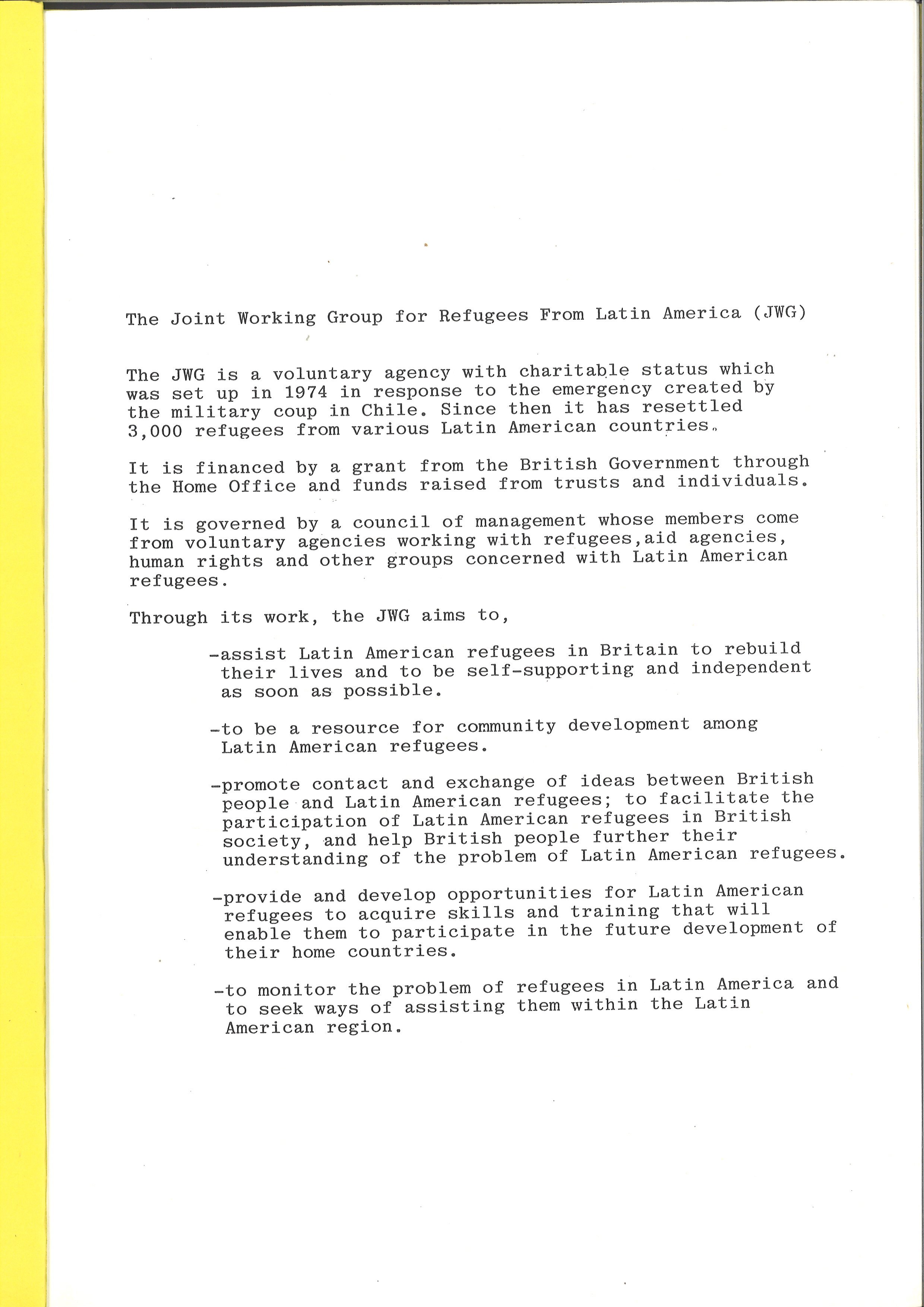
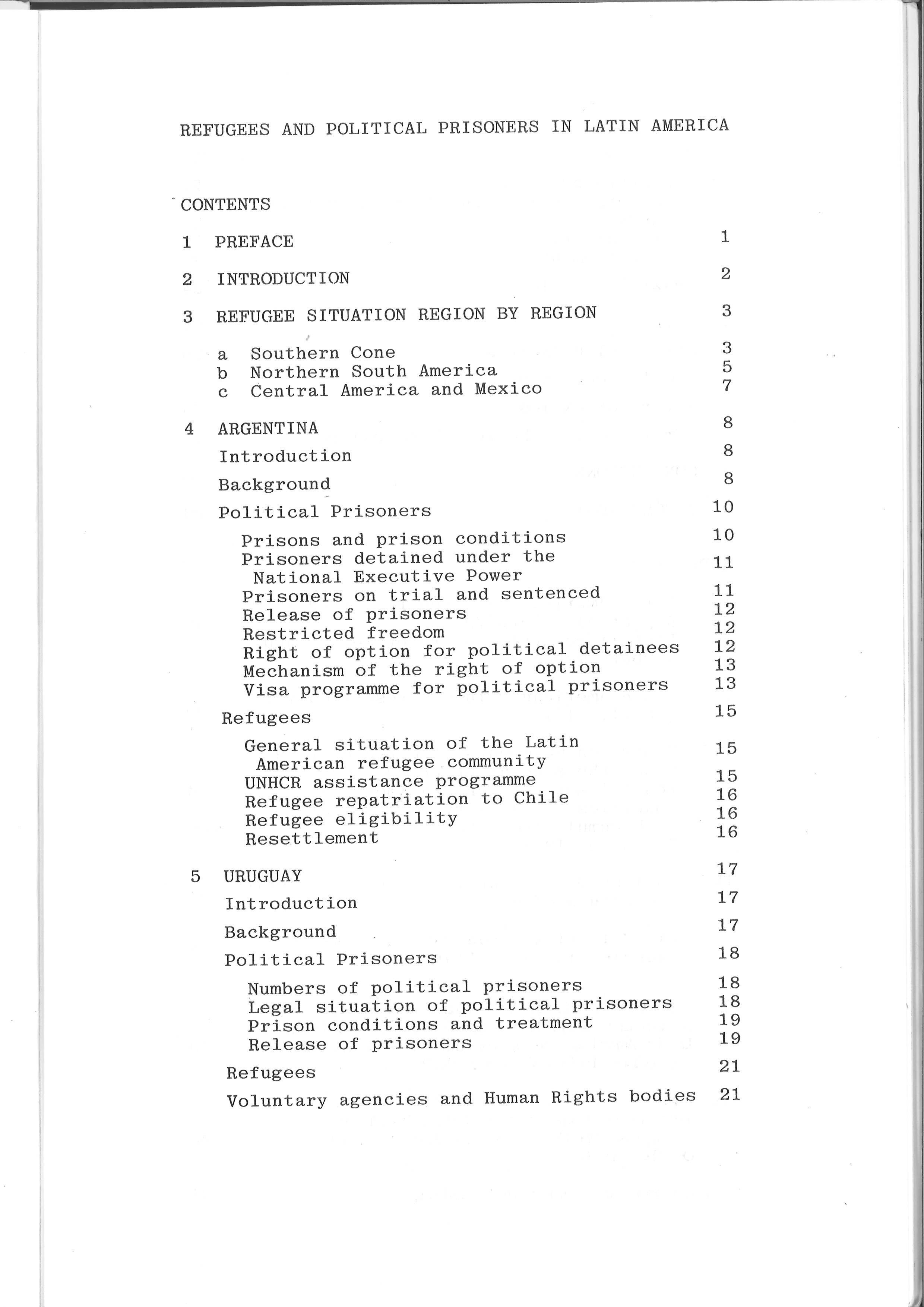
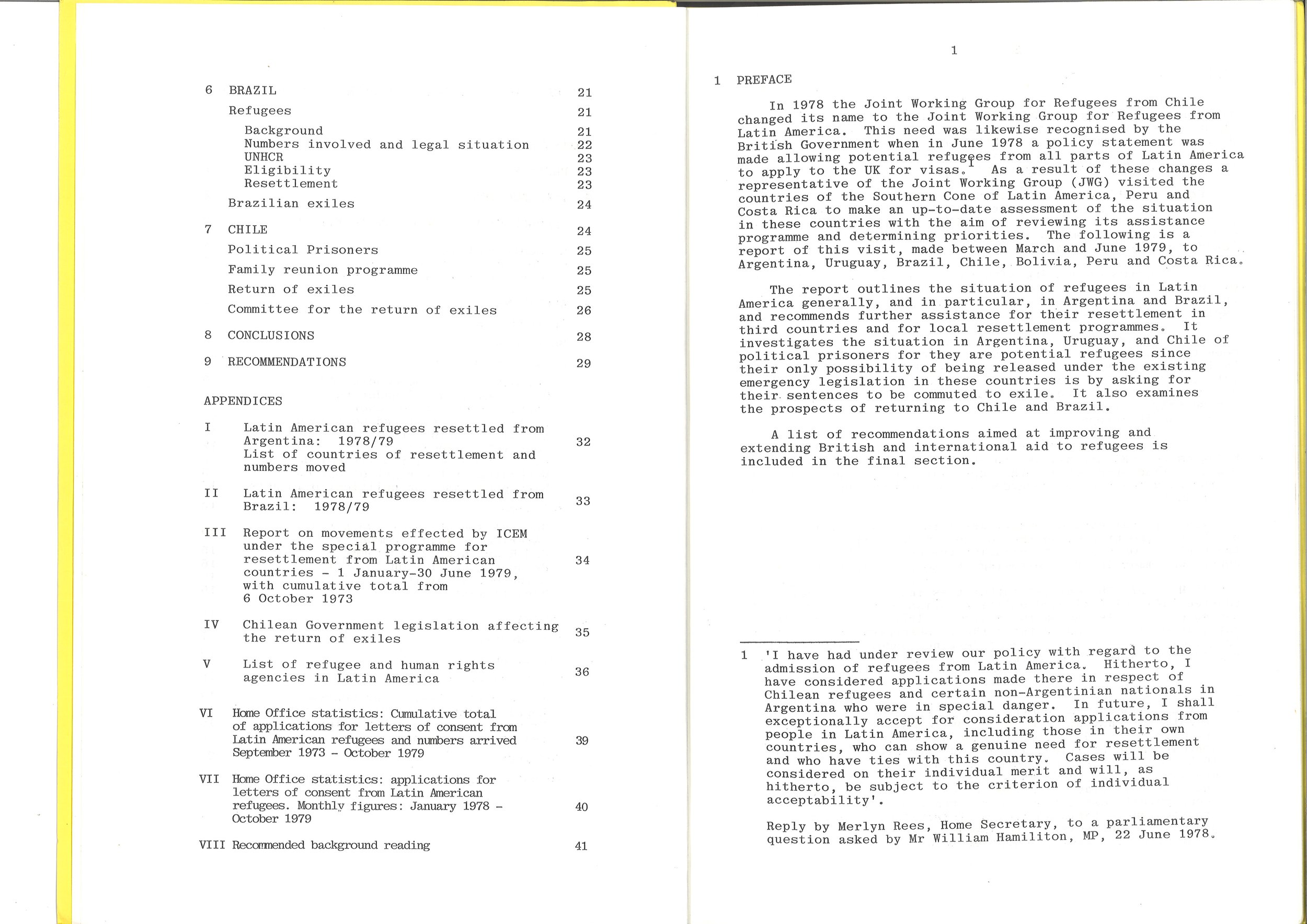
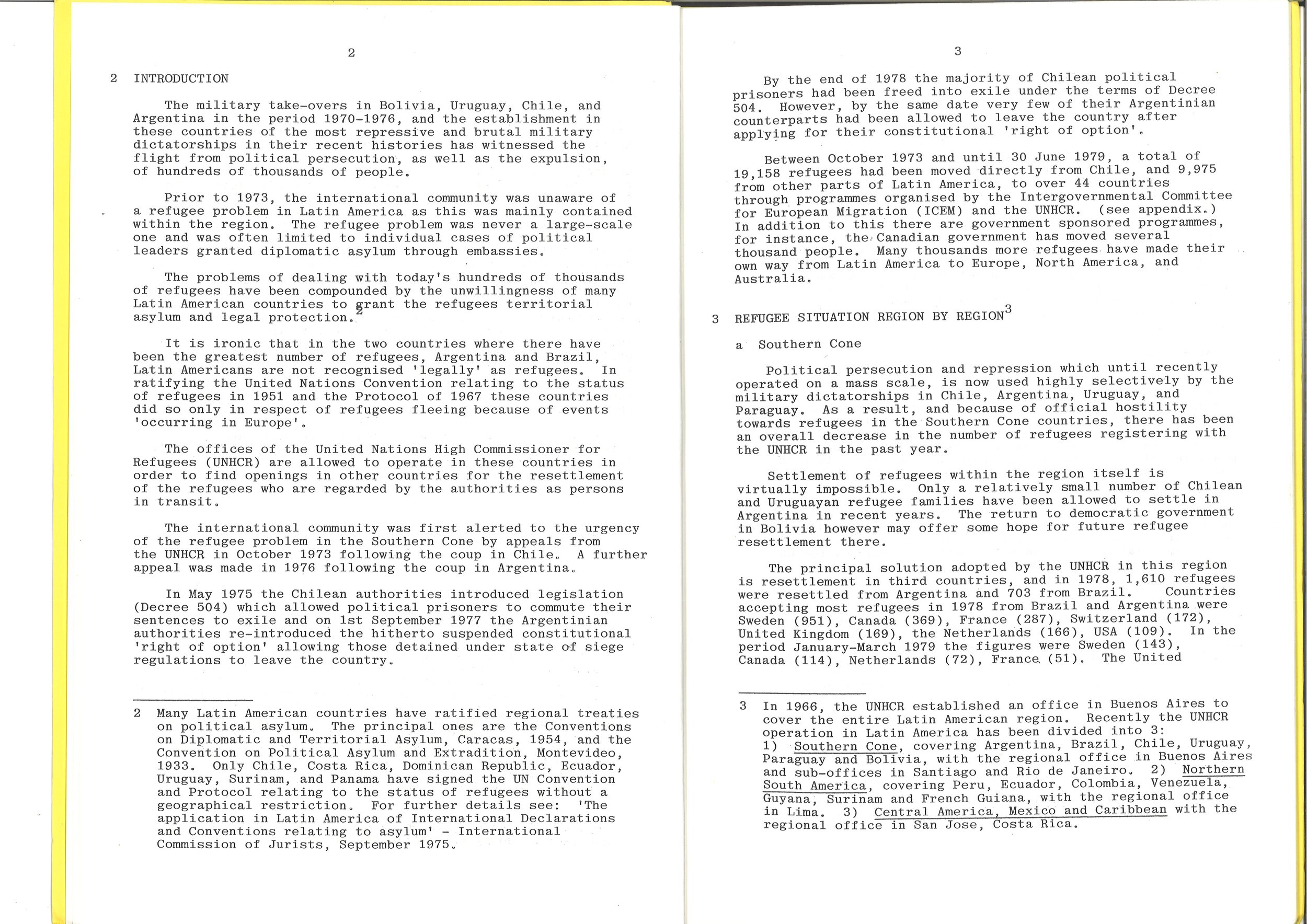
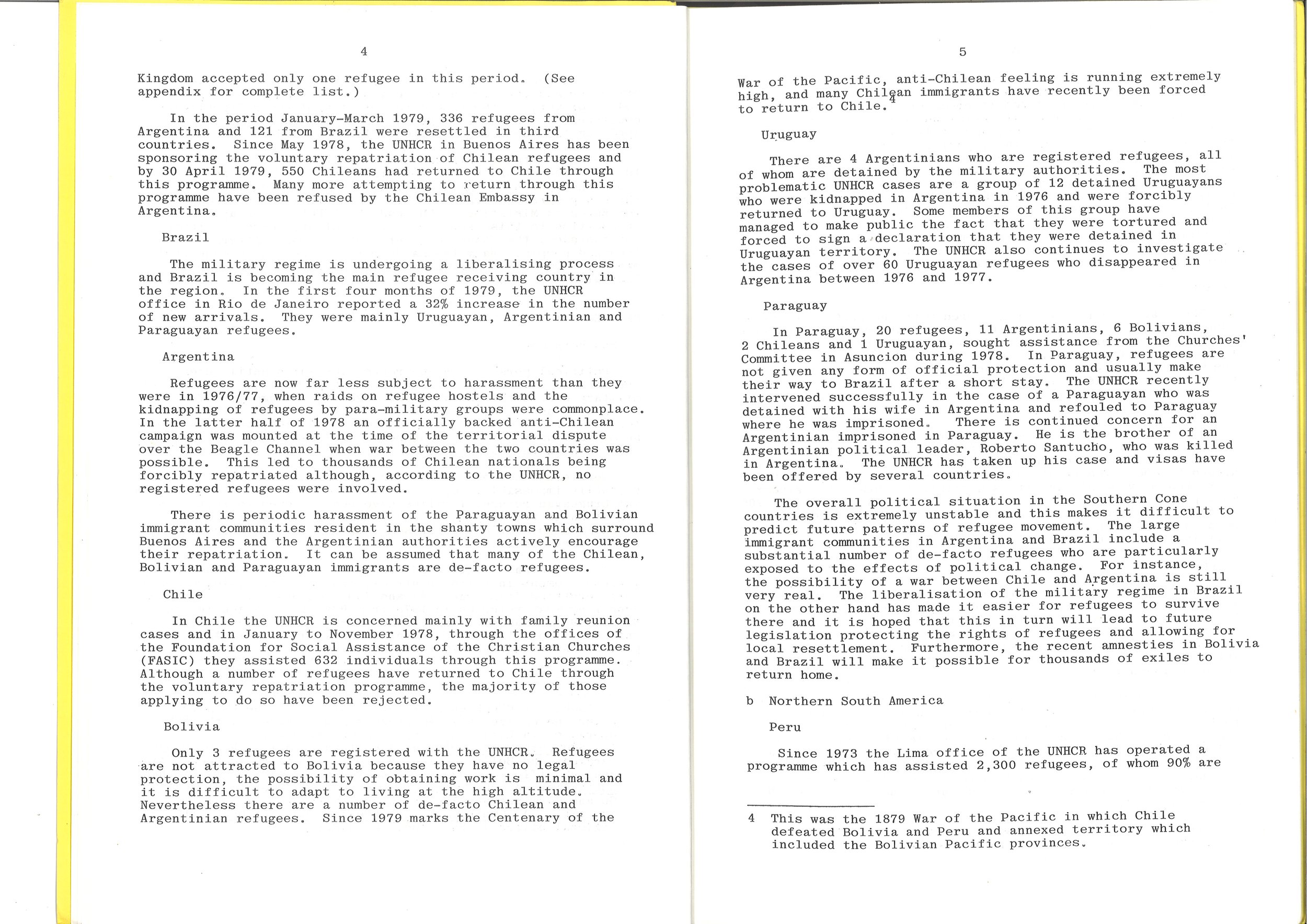
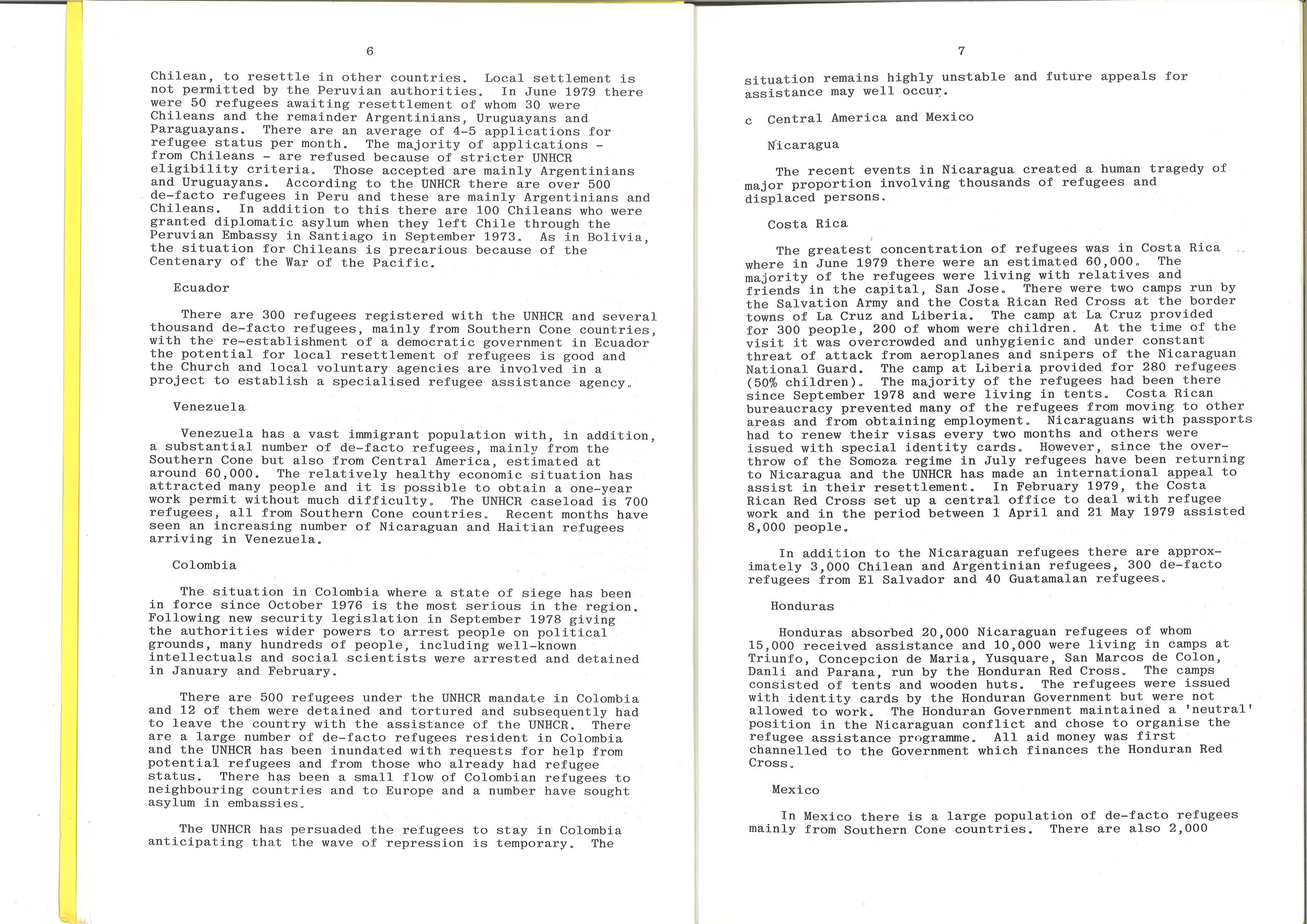
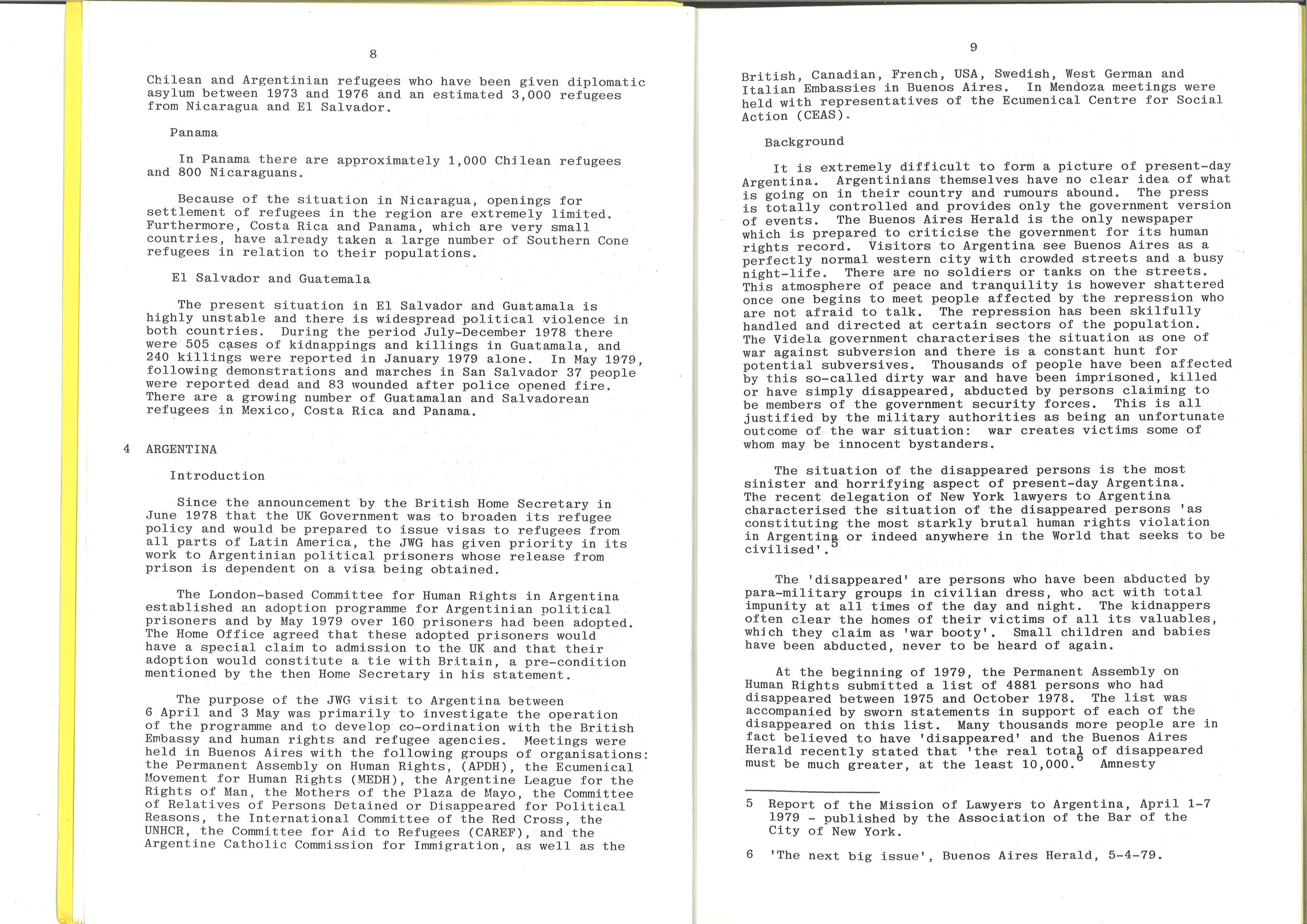
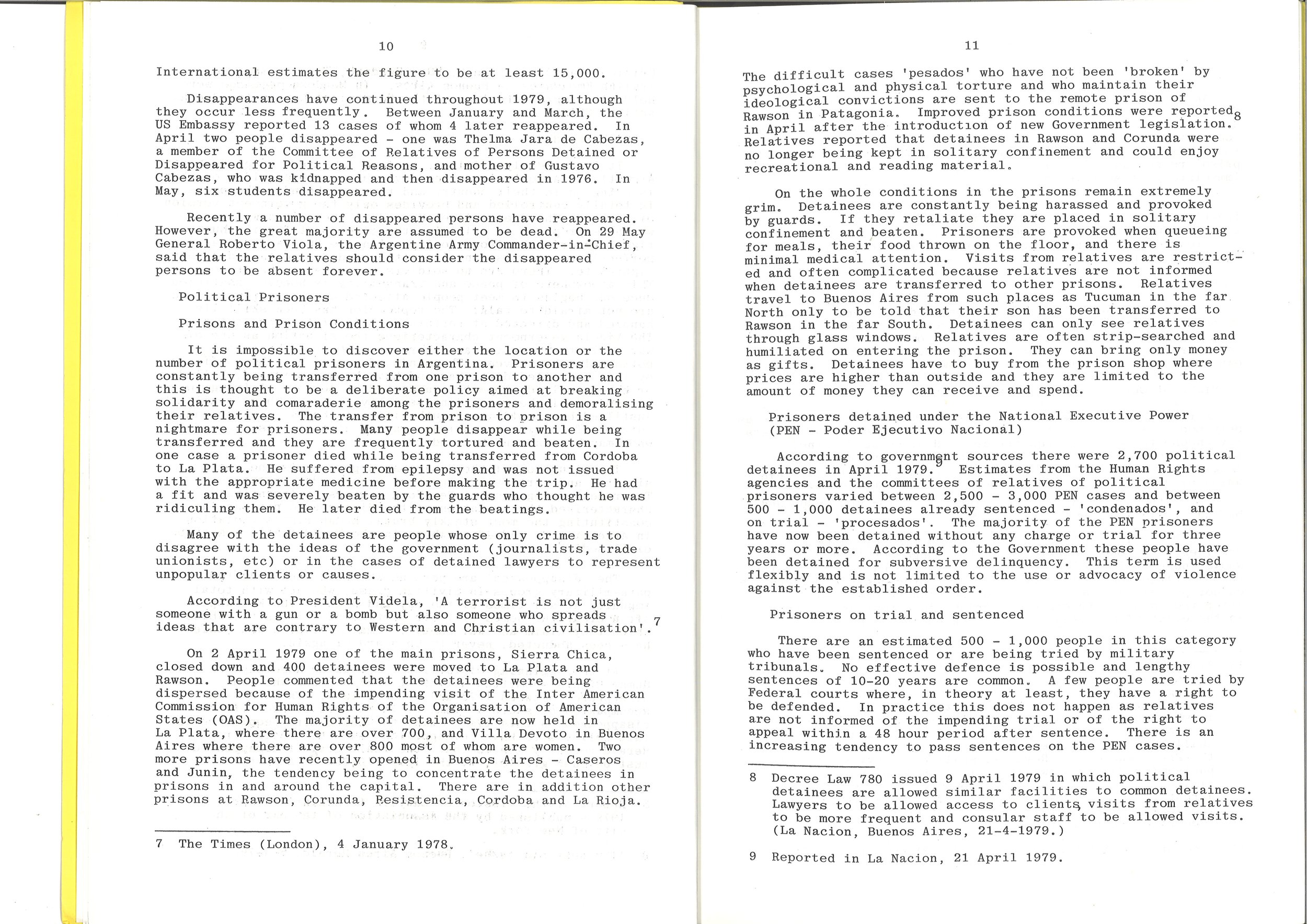
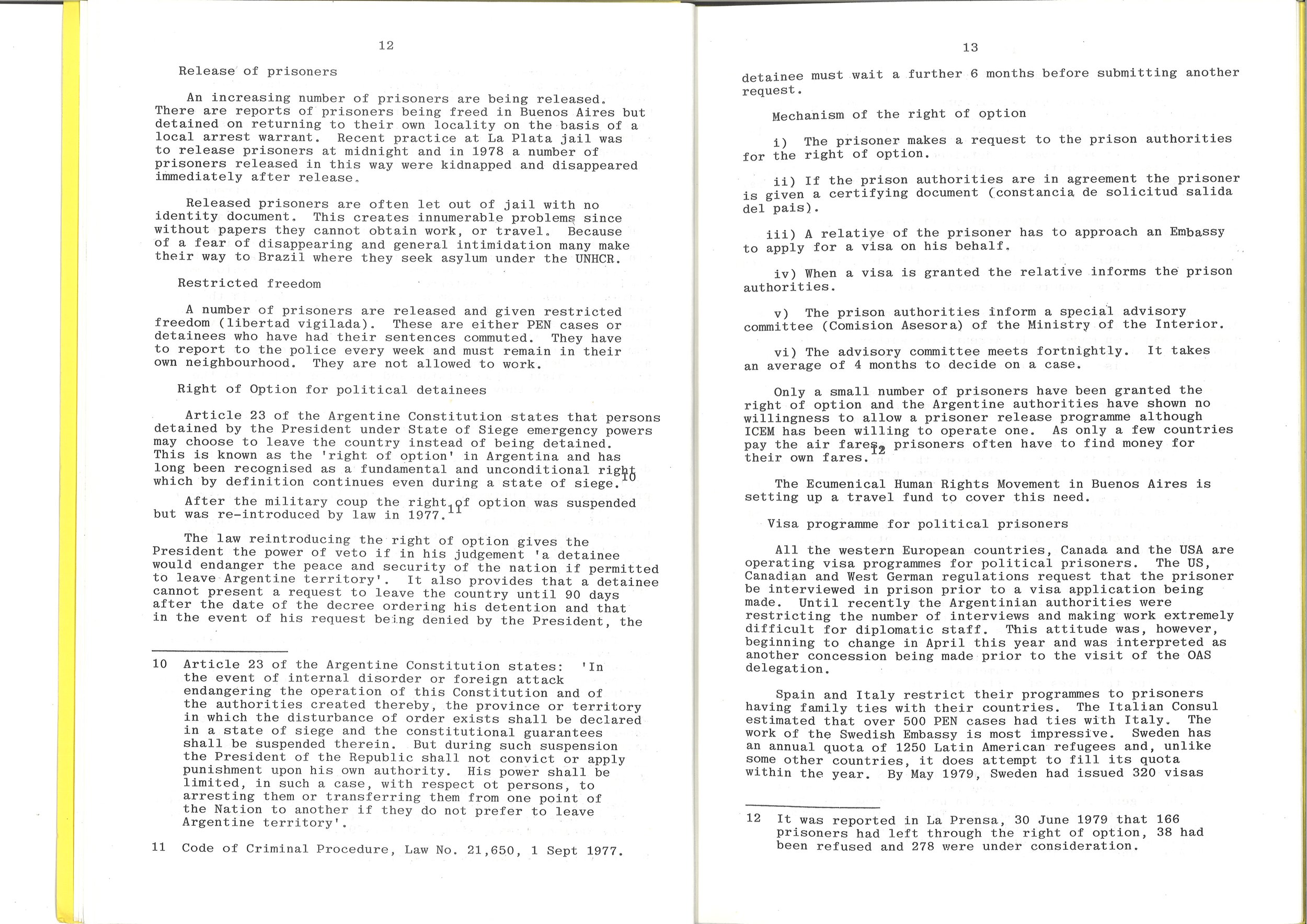
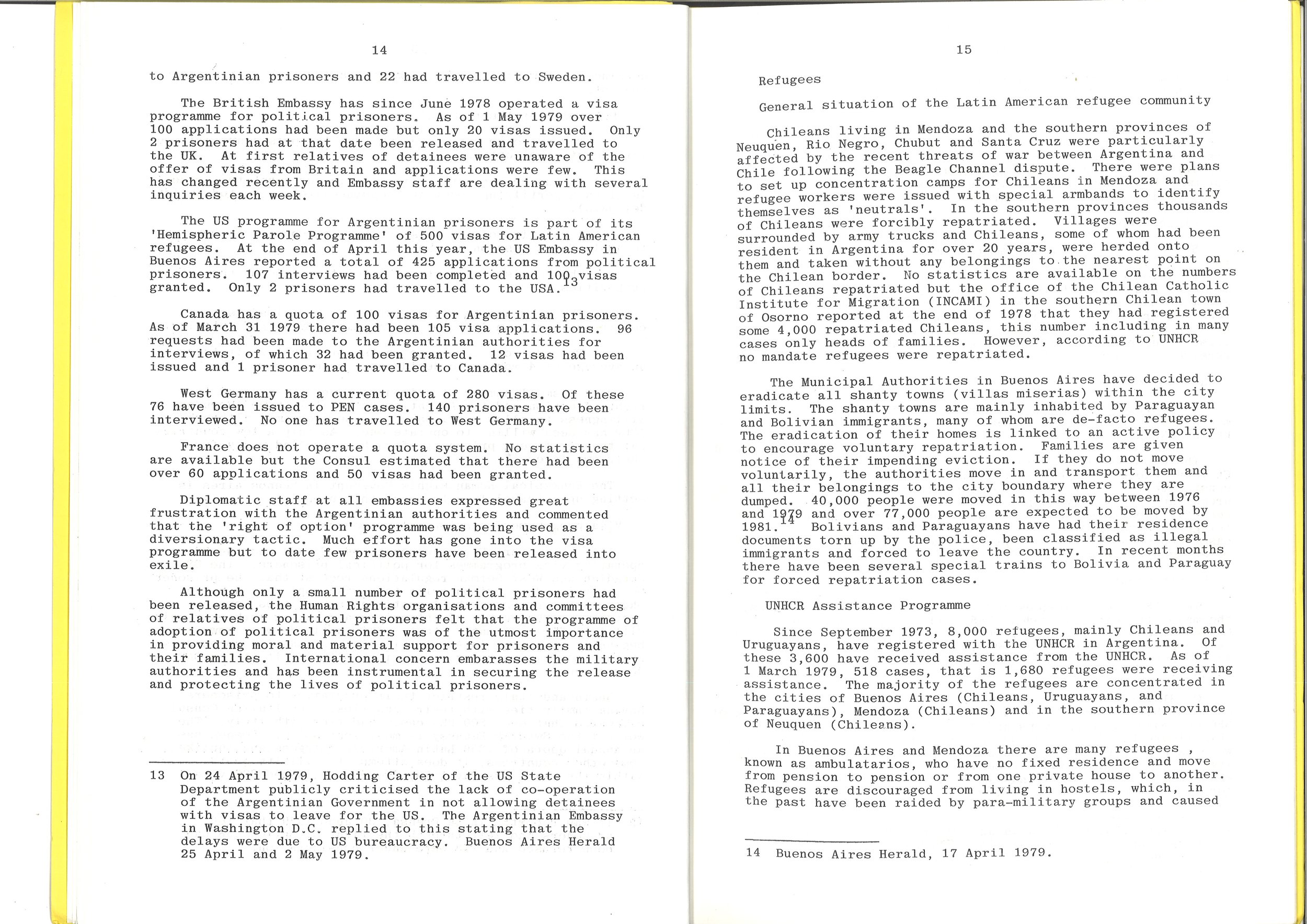
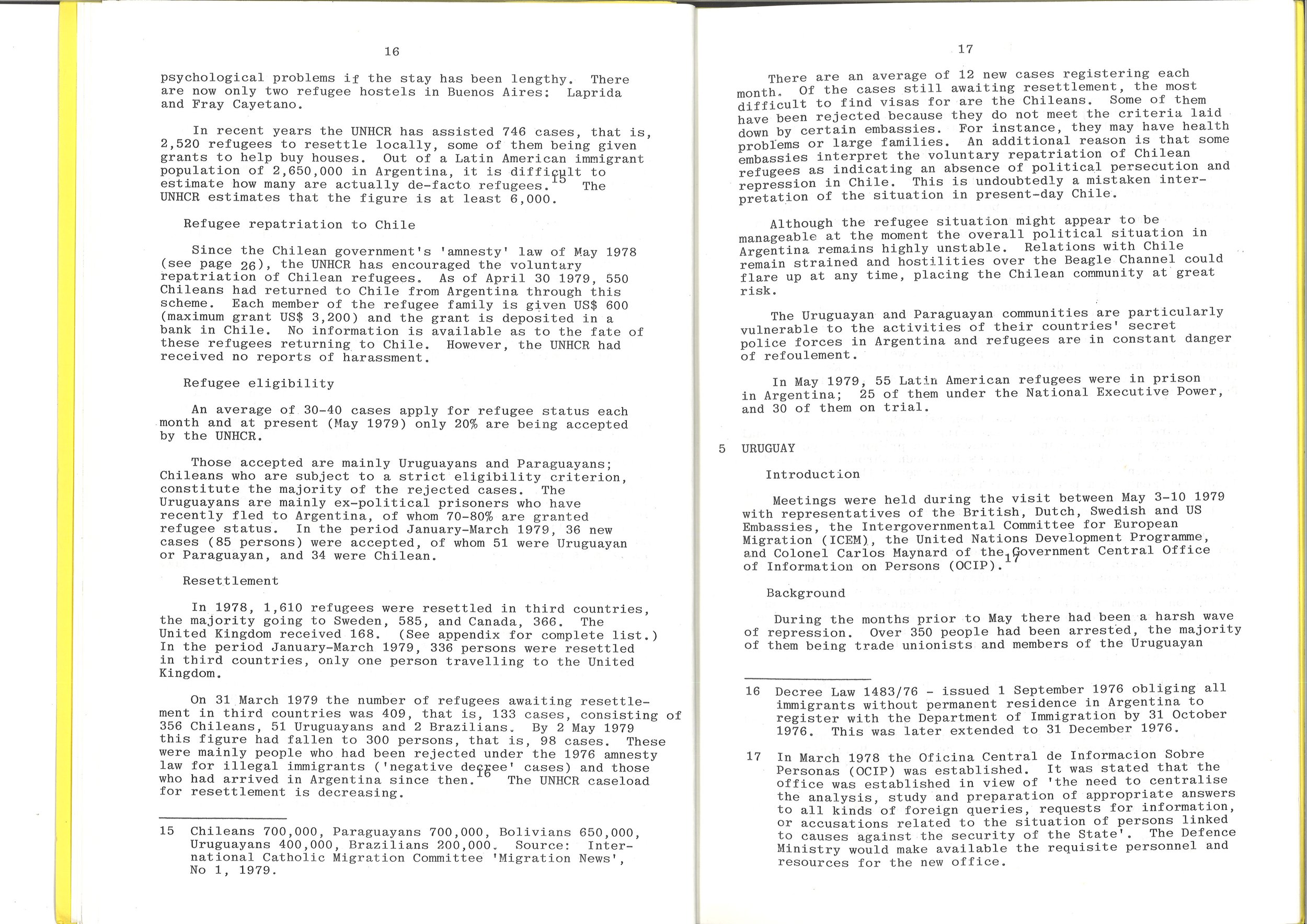
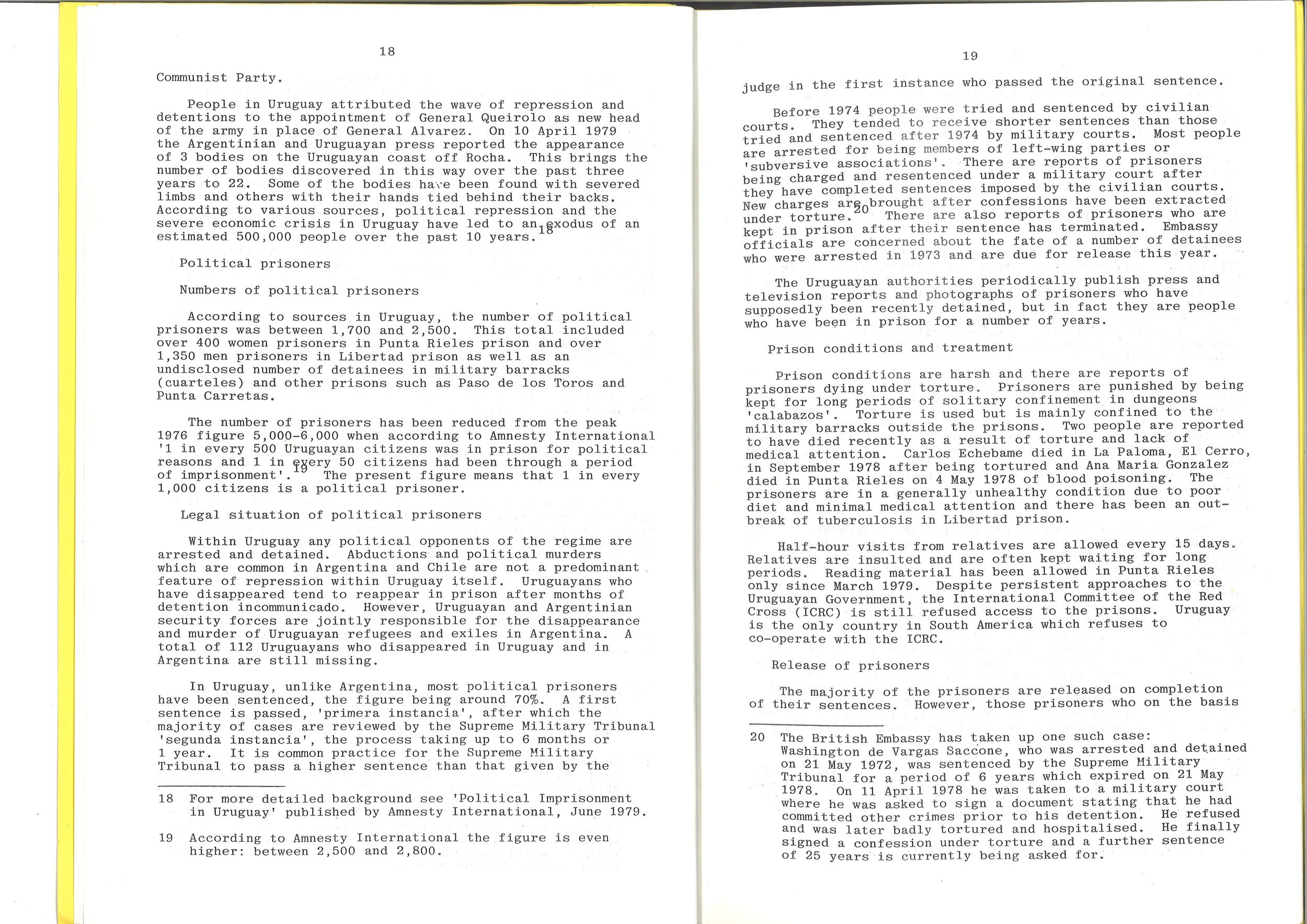
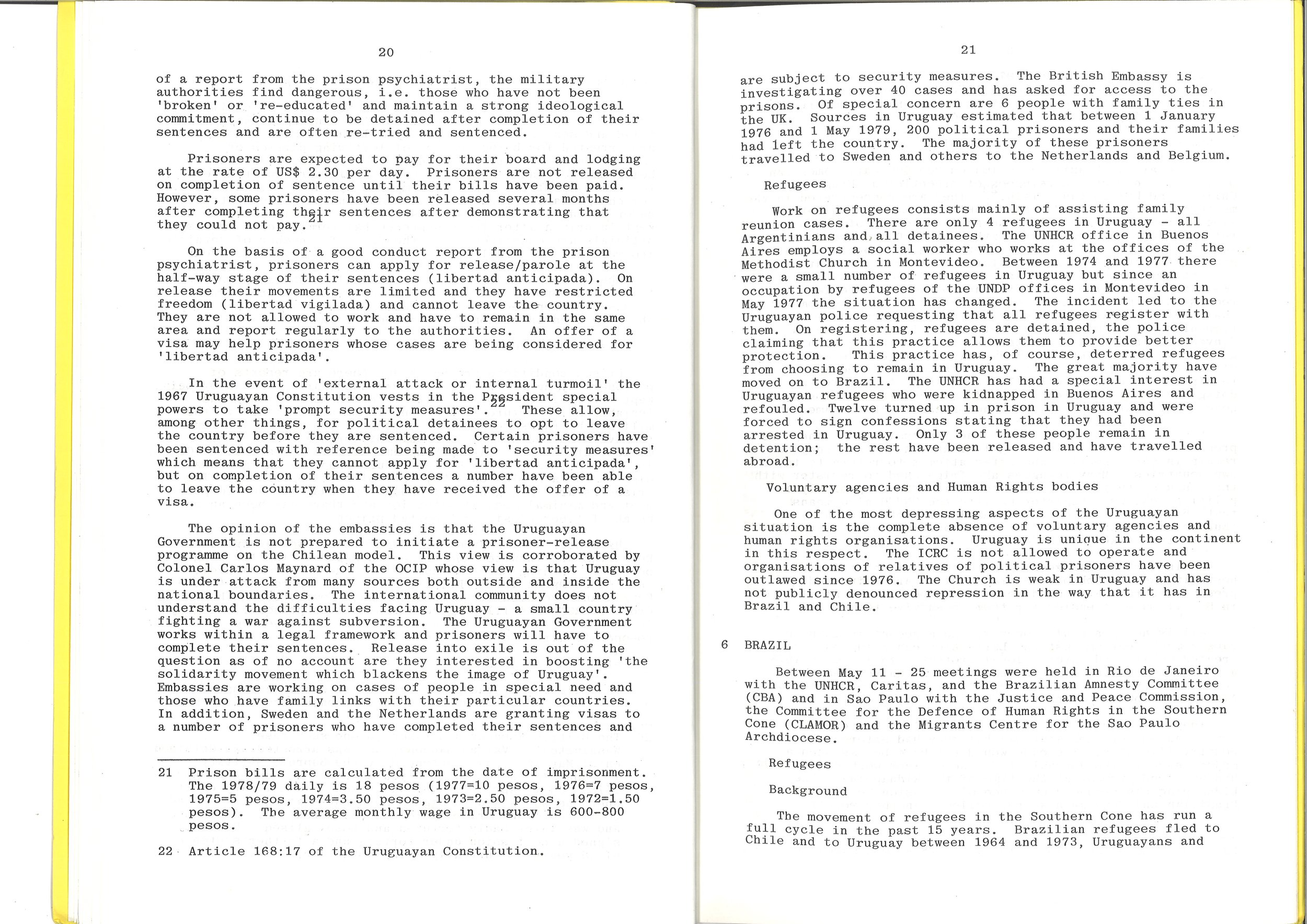
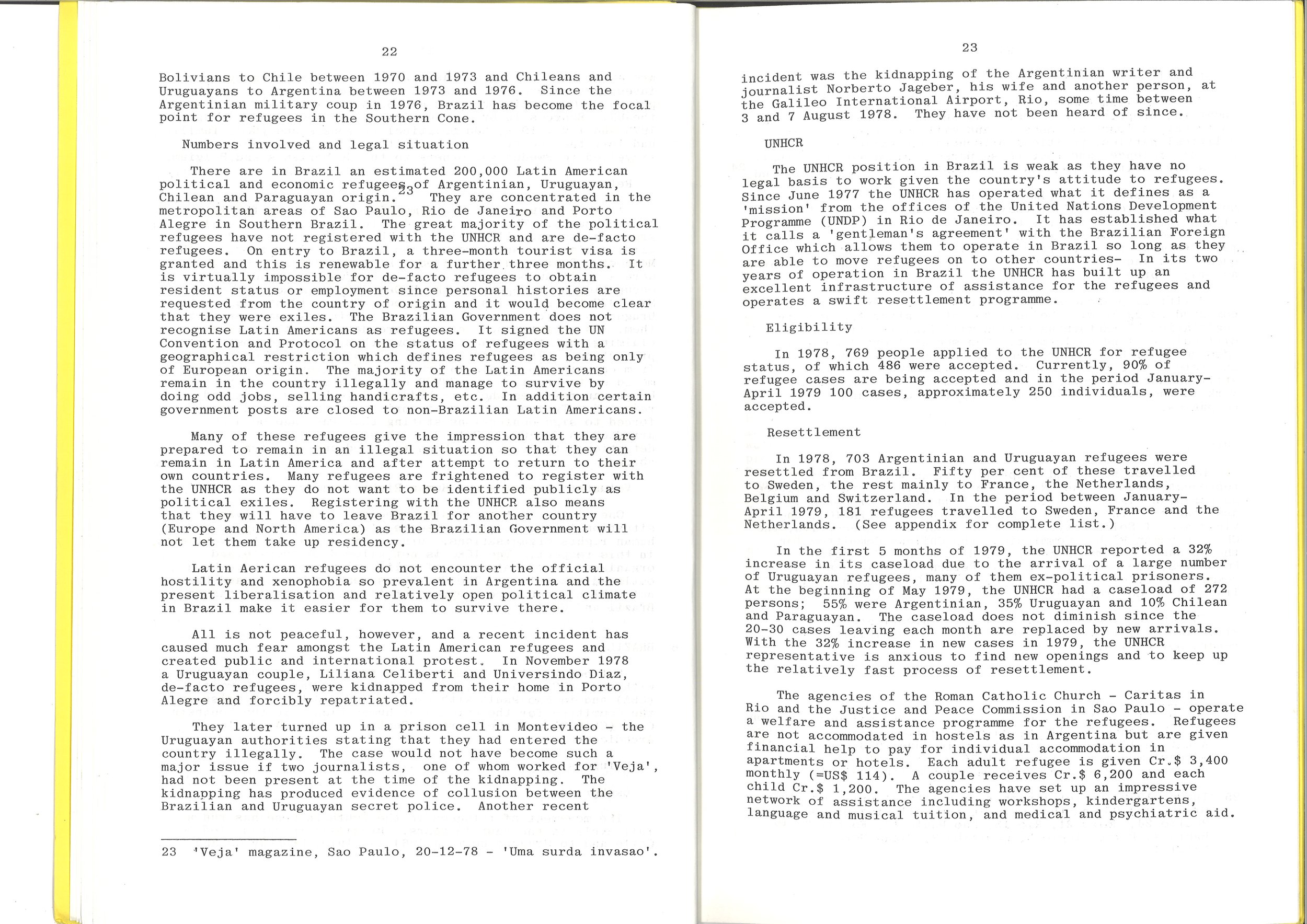

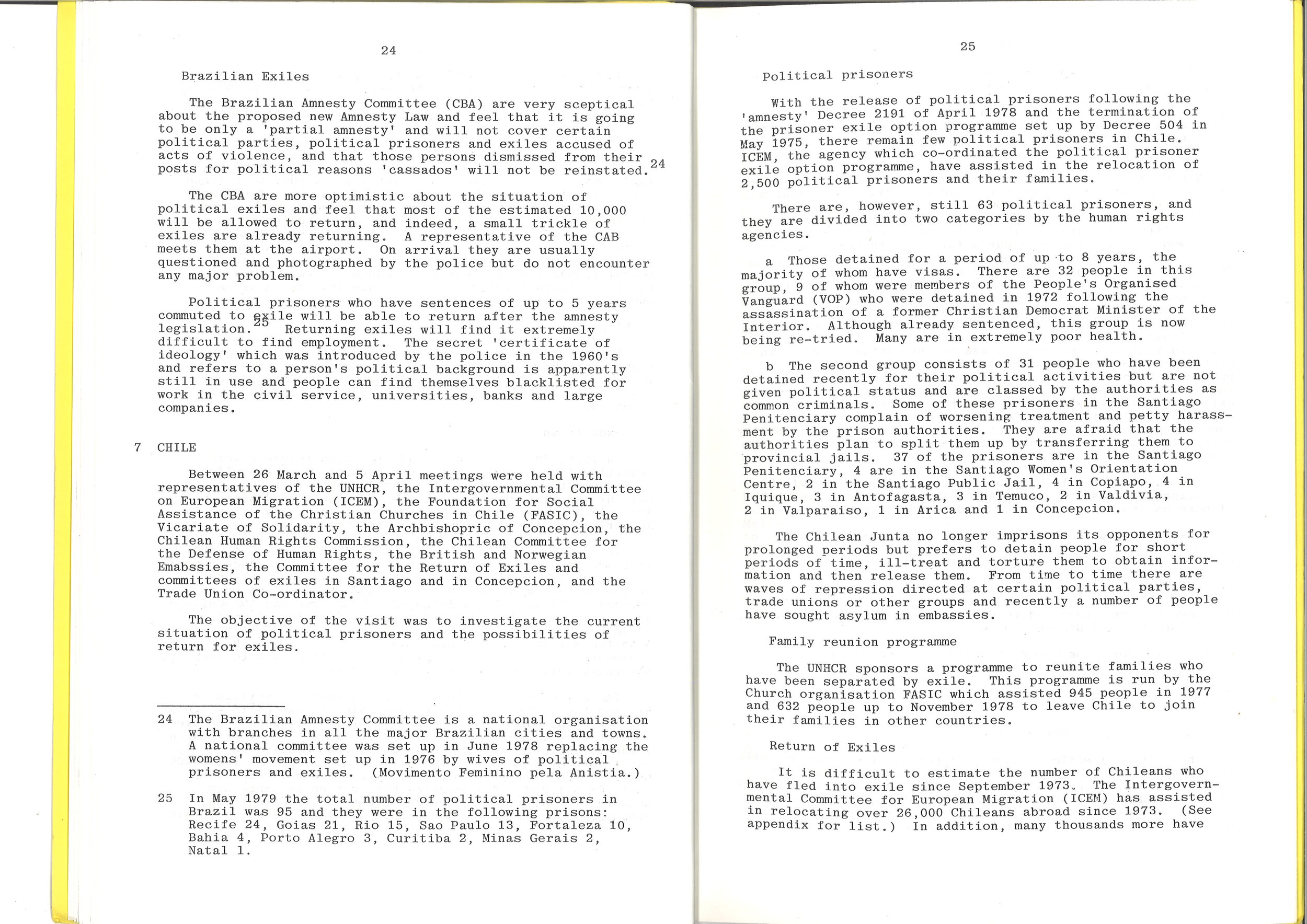
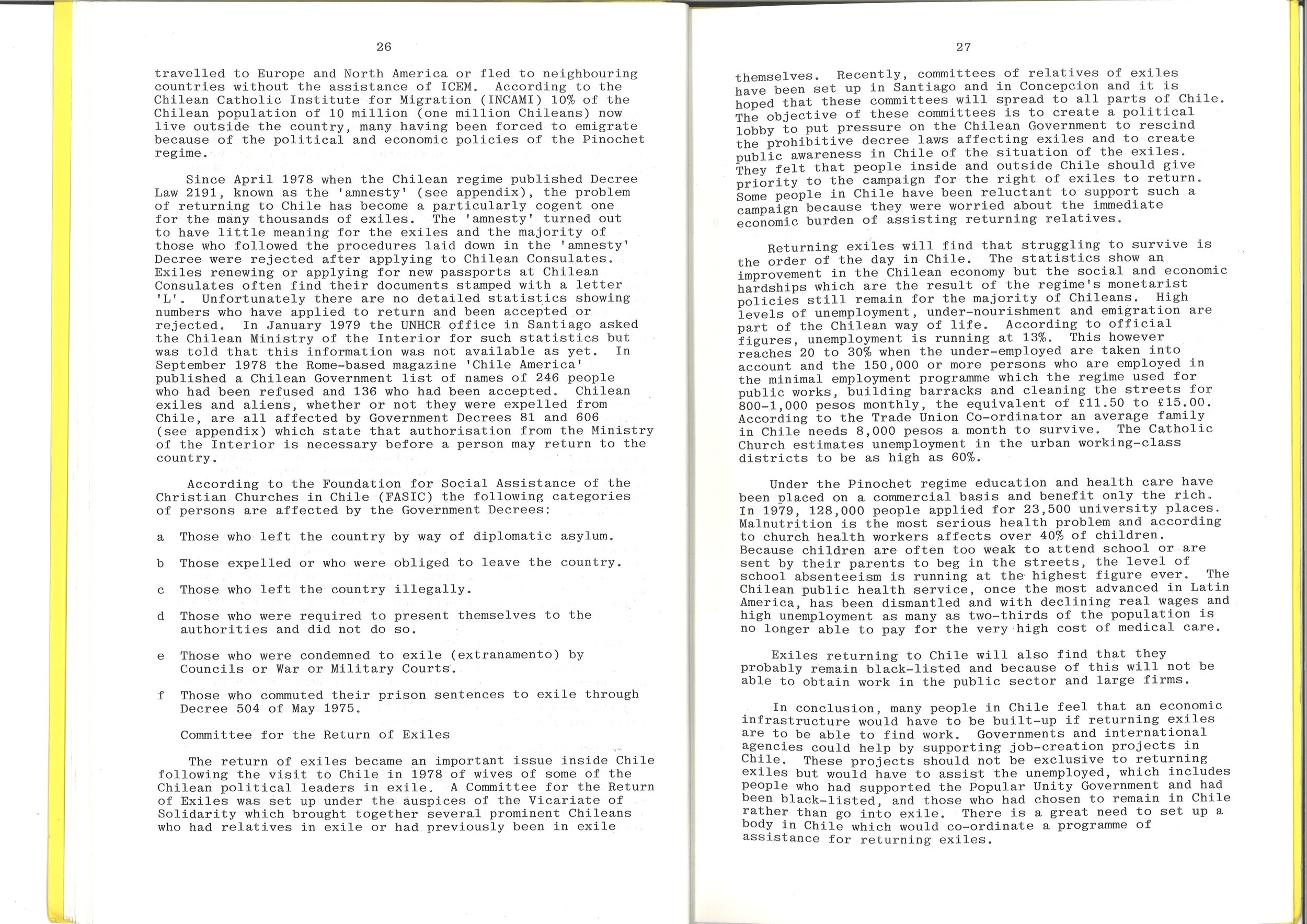
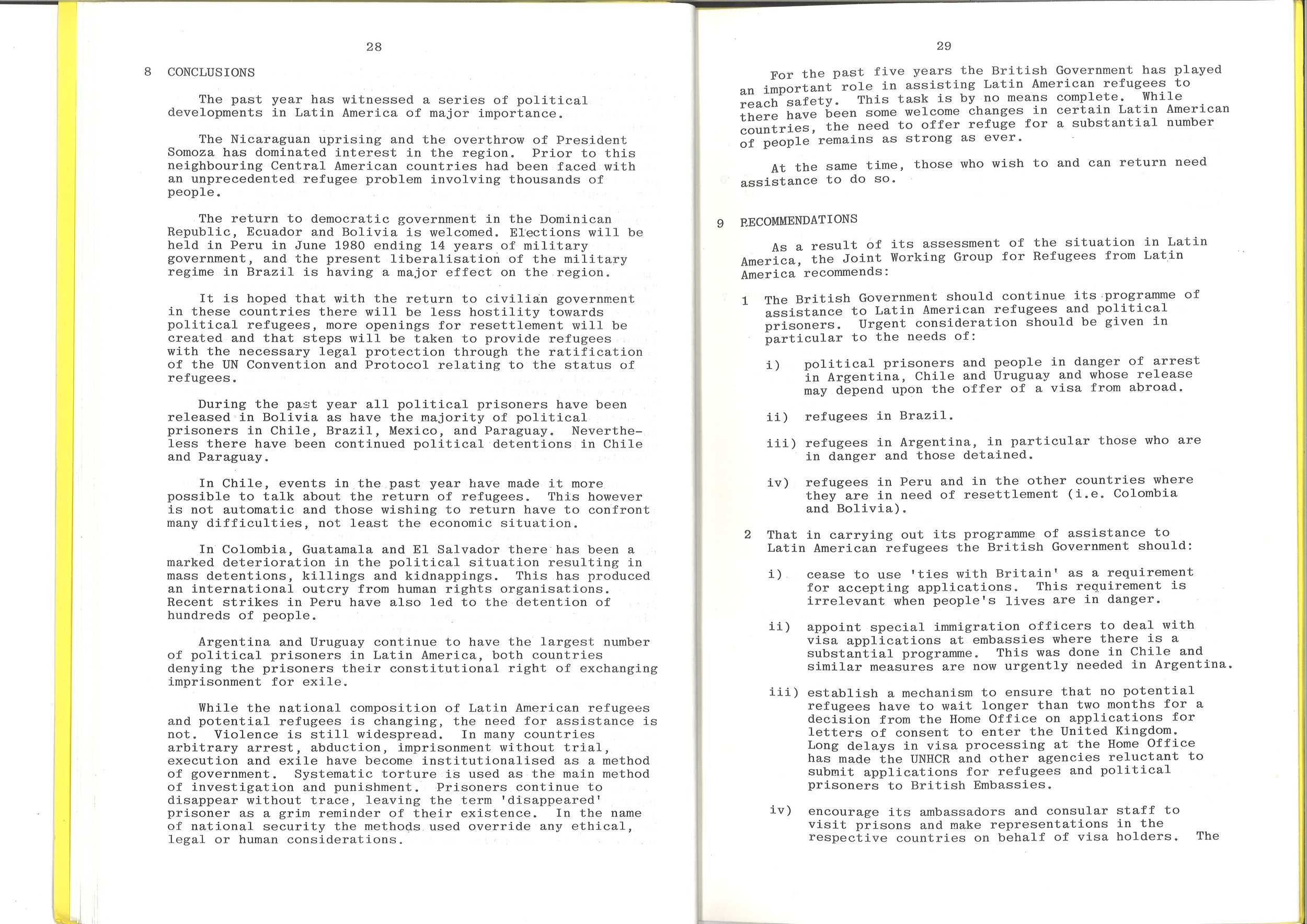
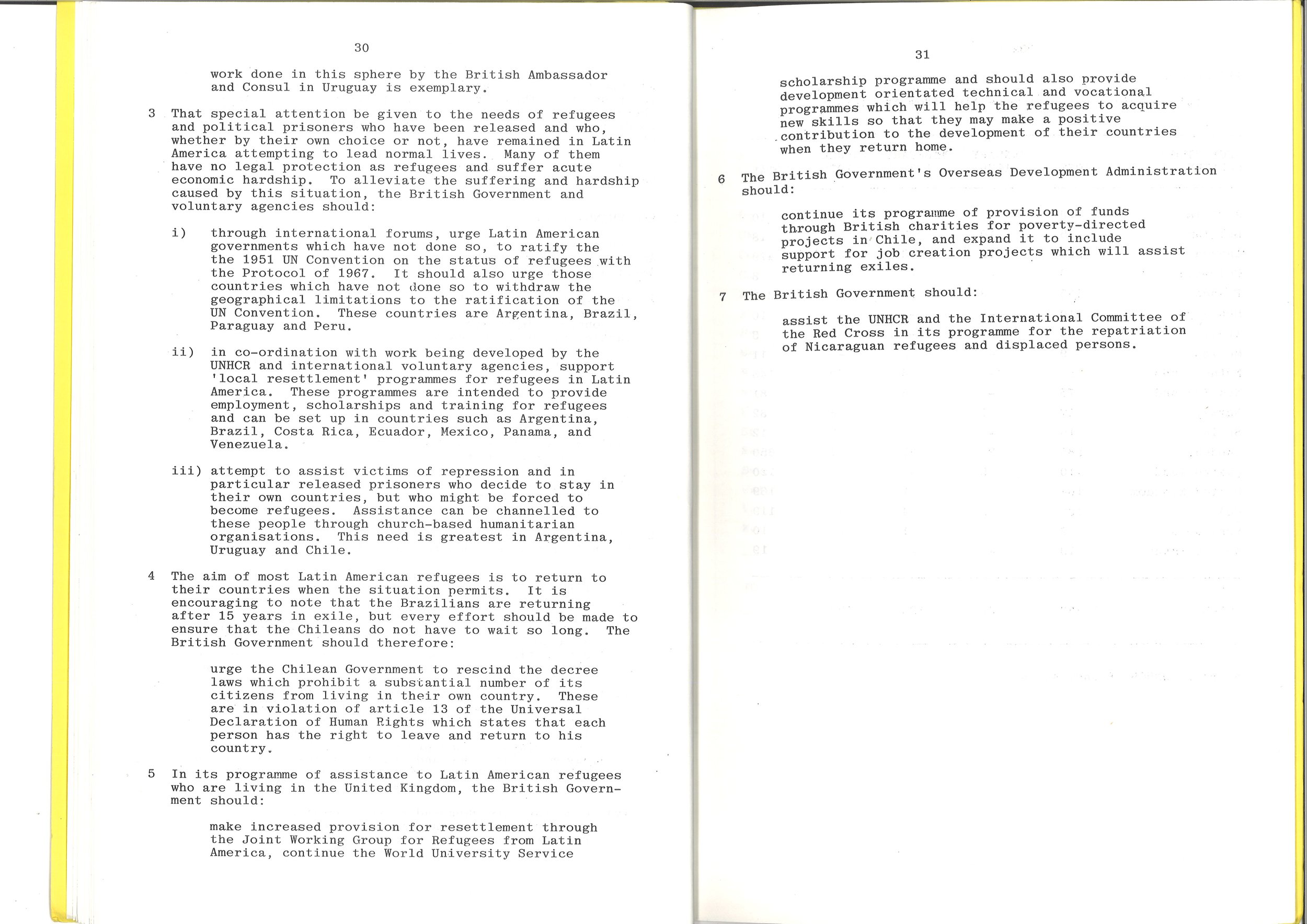
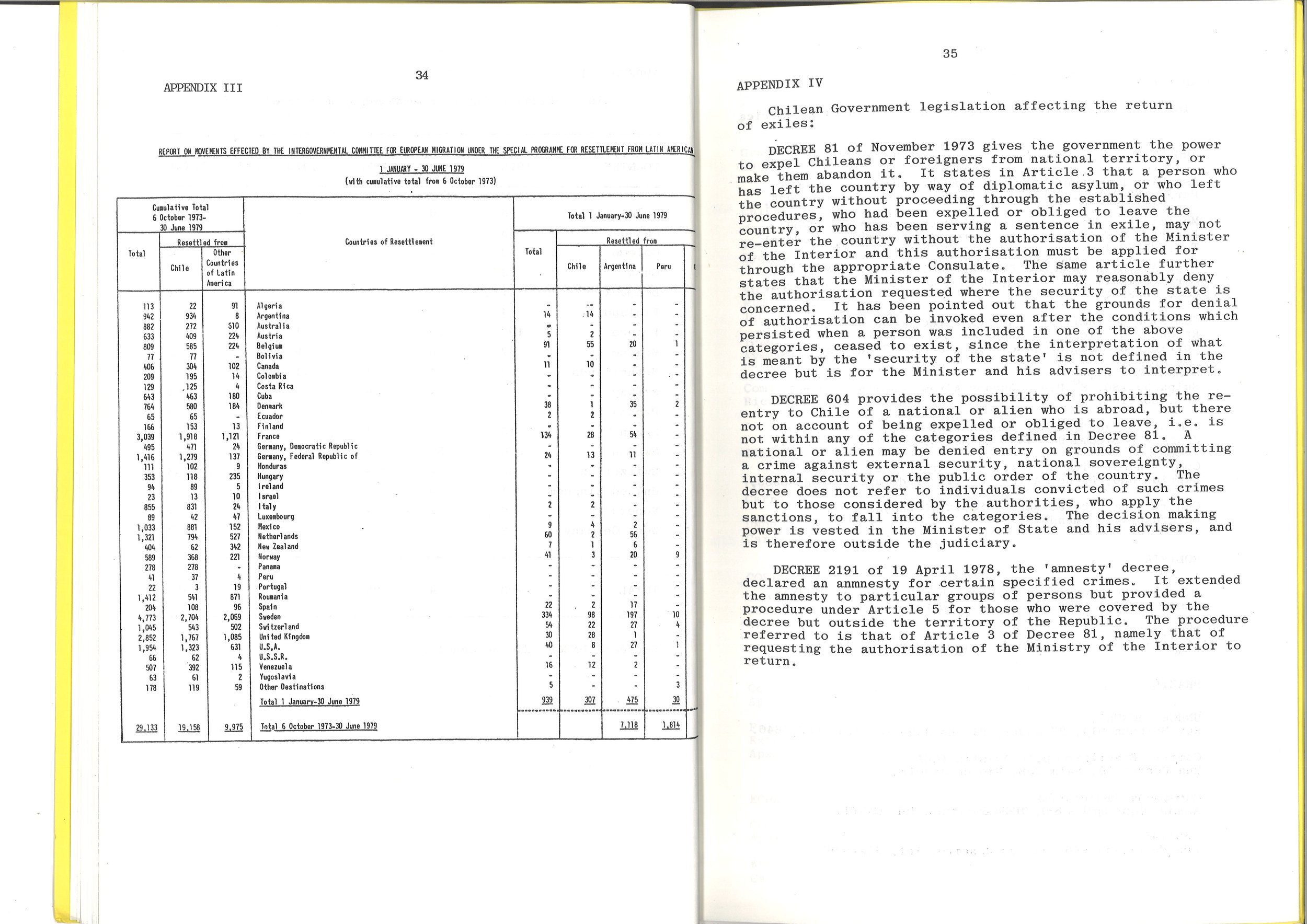
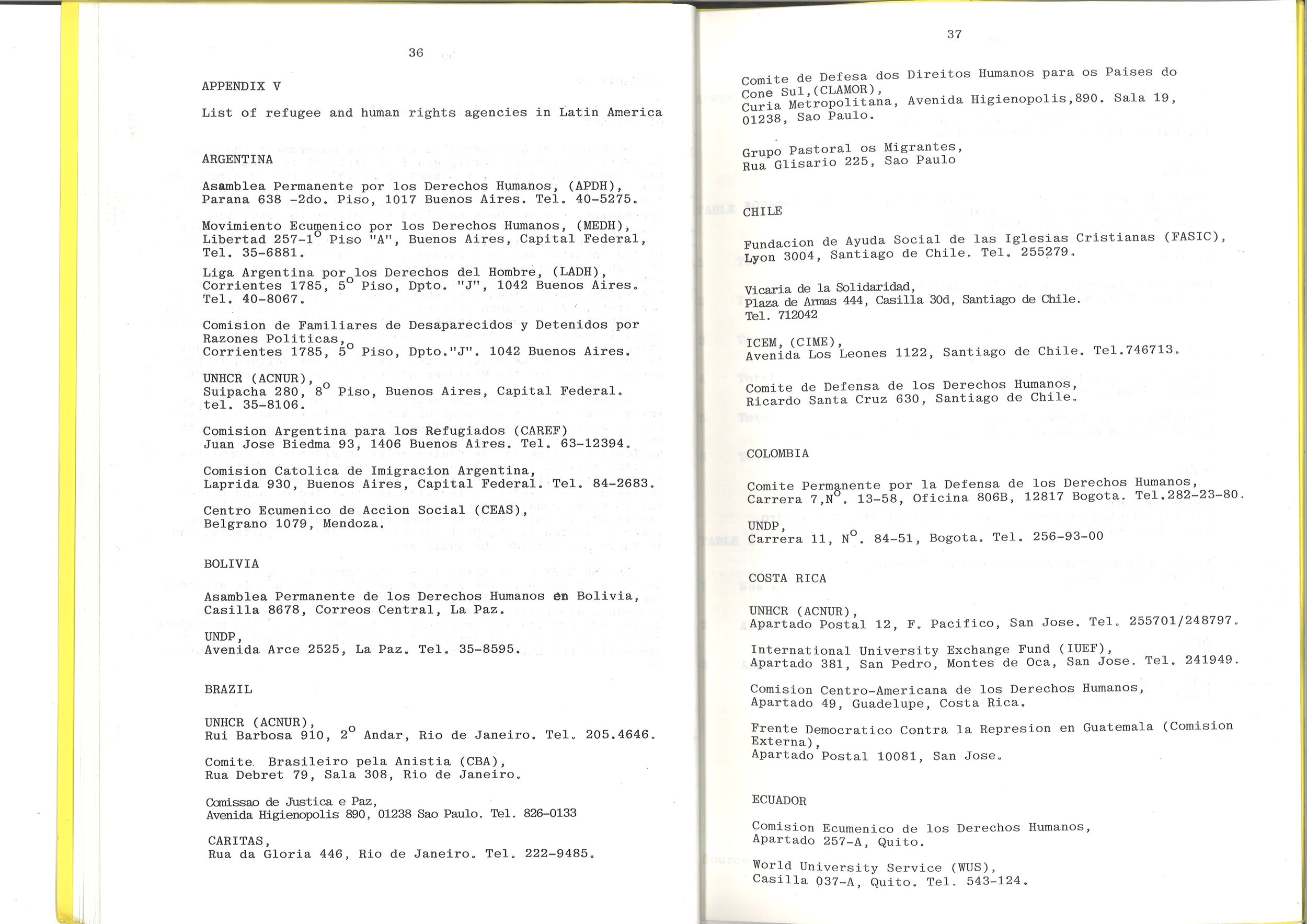
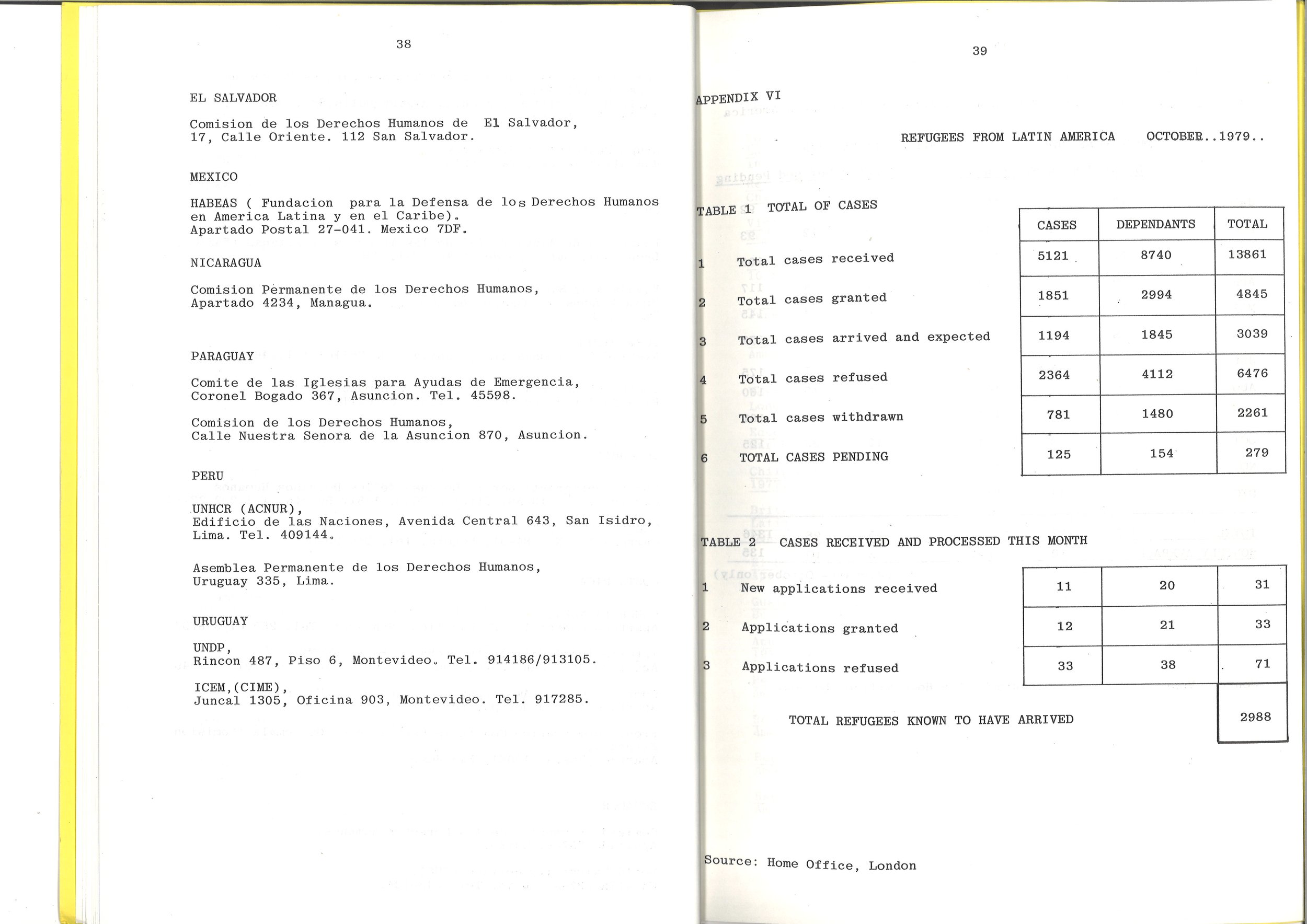
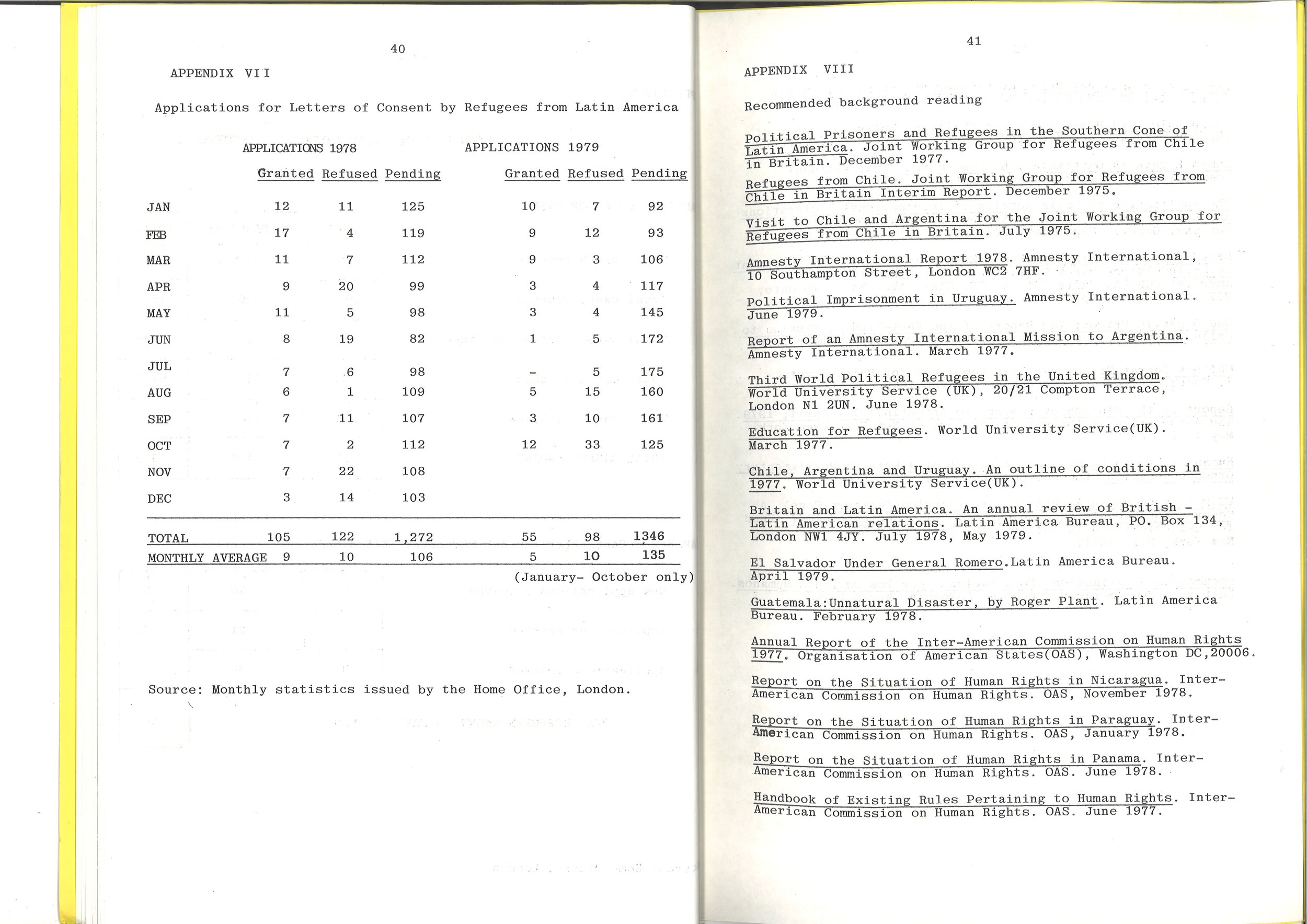
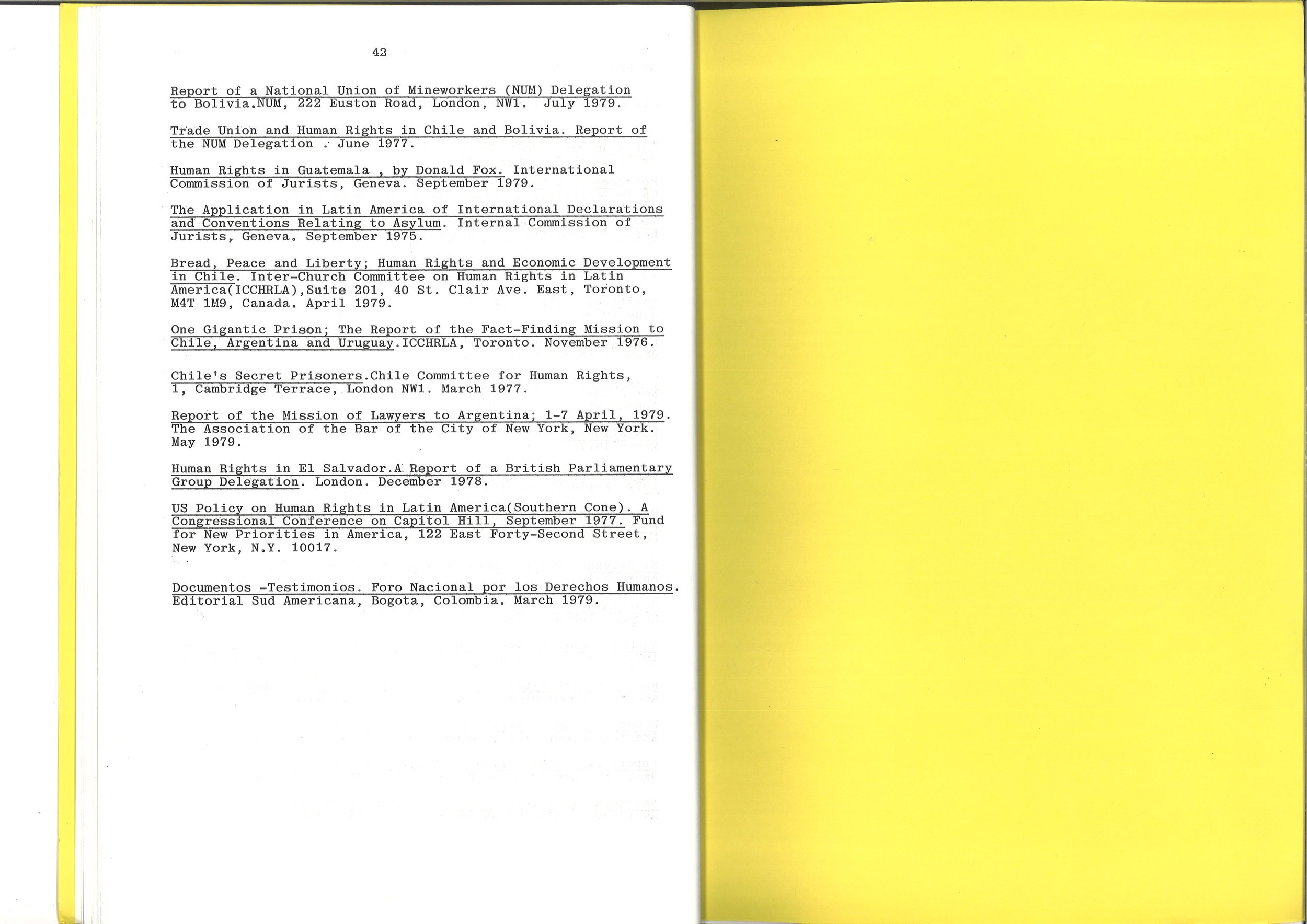
World University Service (WUS)
As well as scholarship programmes for refugee students and academics, WUS had a campaigns unit which organised seminars, conferences, and published reports.
A newsletter for students highlighted these campaigns. Use the arrows below to scroll through copies of the WUS newsletter featuring a conference organised at Sheffield University, workshops to highlight issues facing Chilean refugees in Britain and campaigns to get support from DOMOS, an educational resource centre for women living in Chile. Many thanks to Marilyn Thomson for donating these sources.
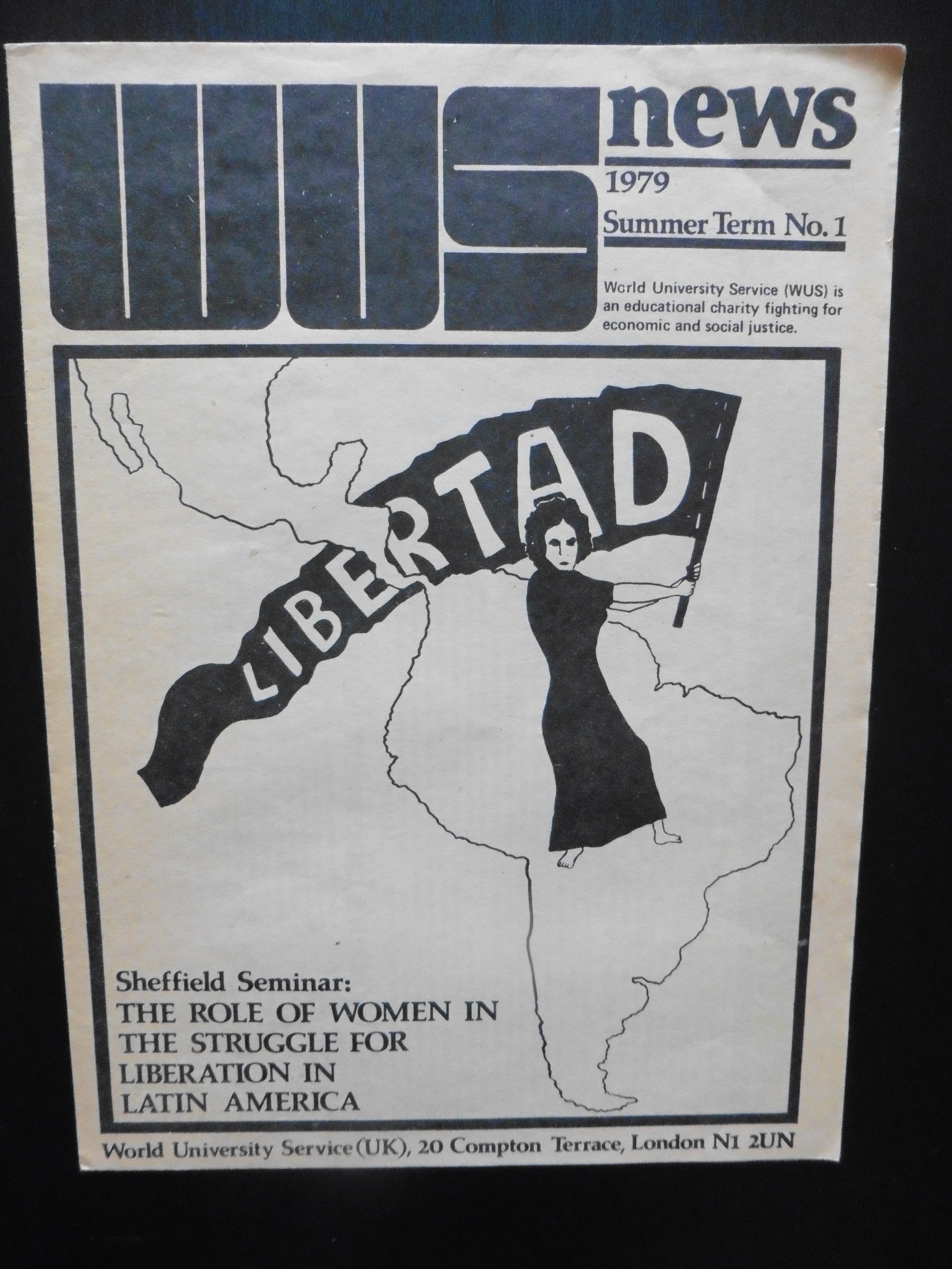
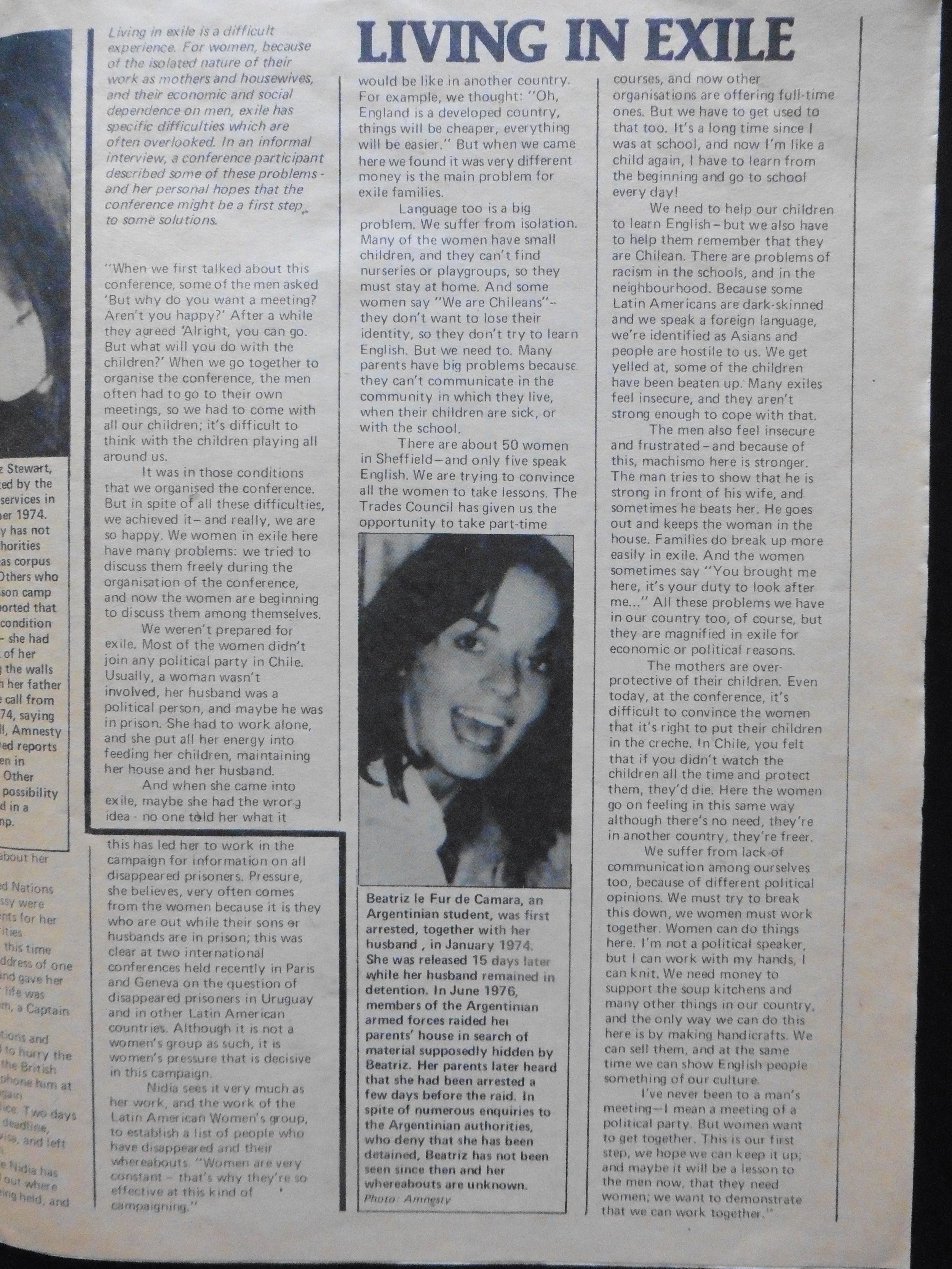
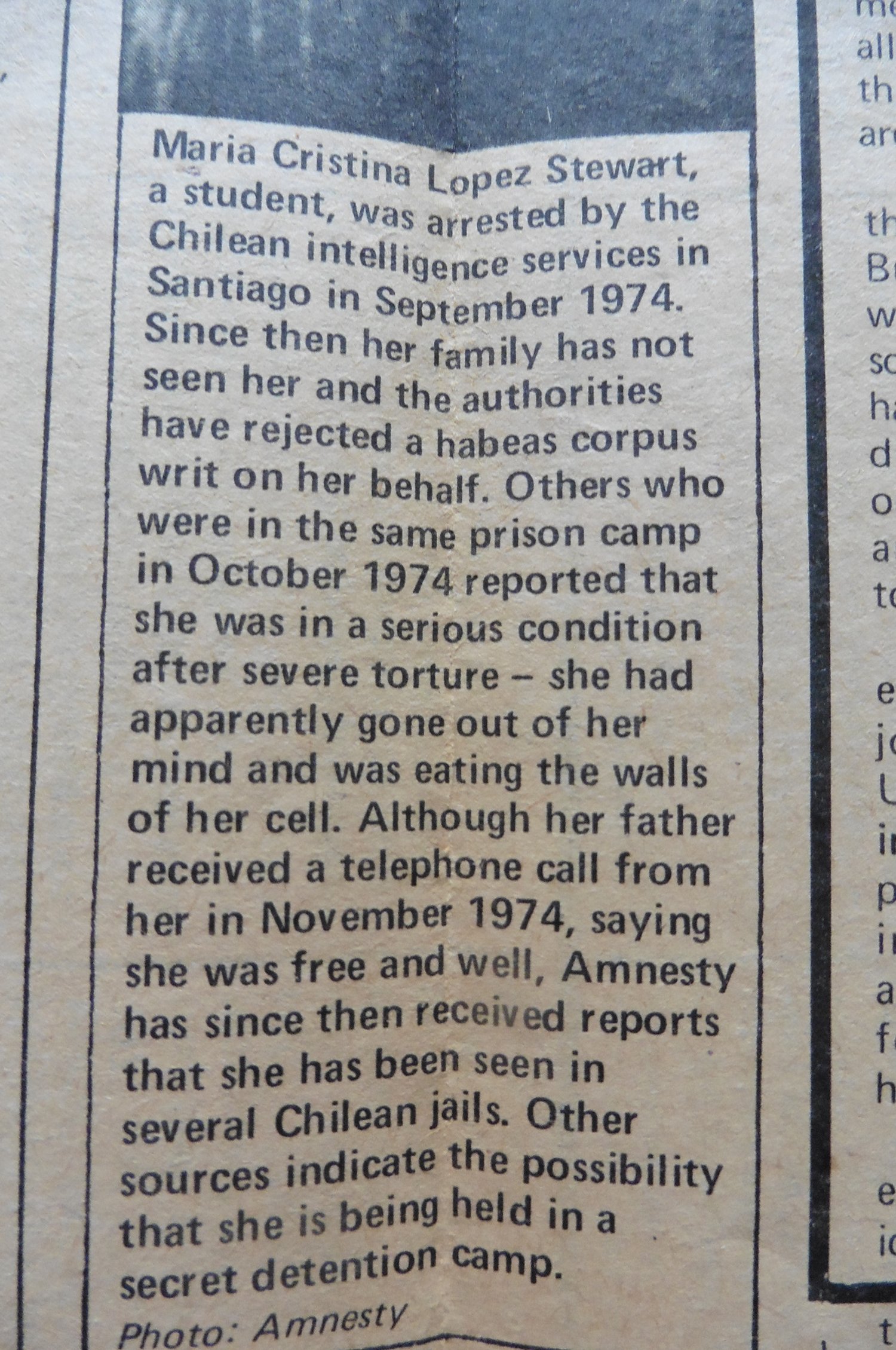
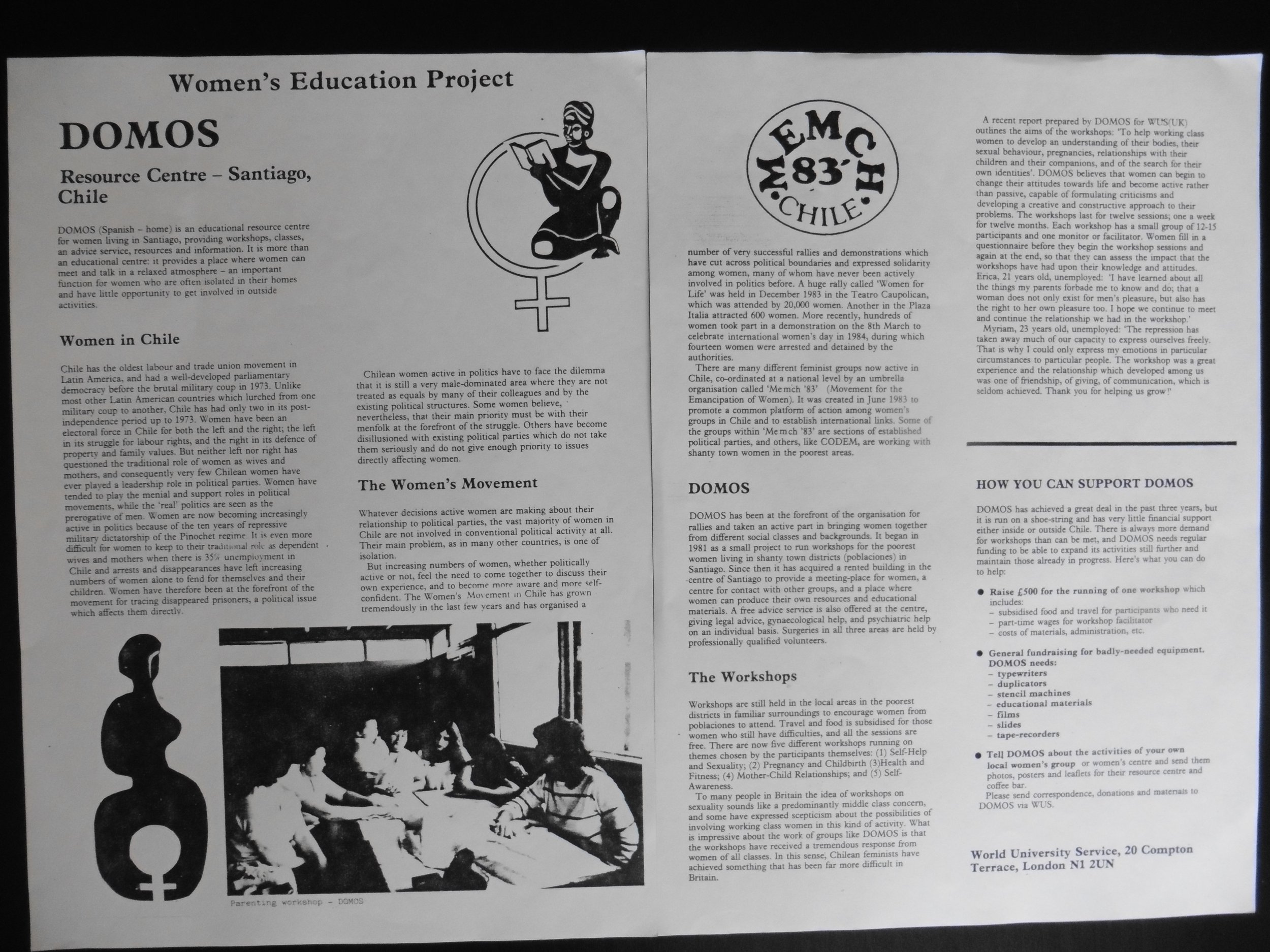
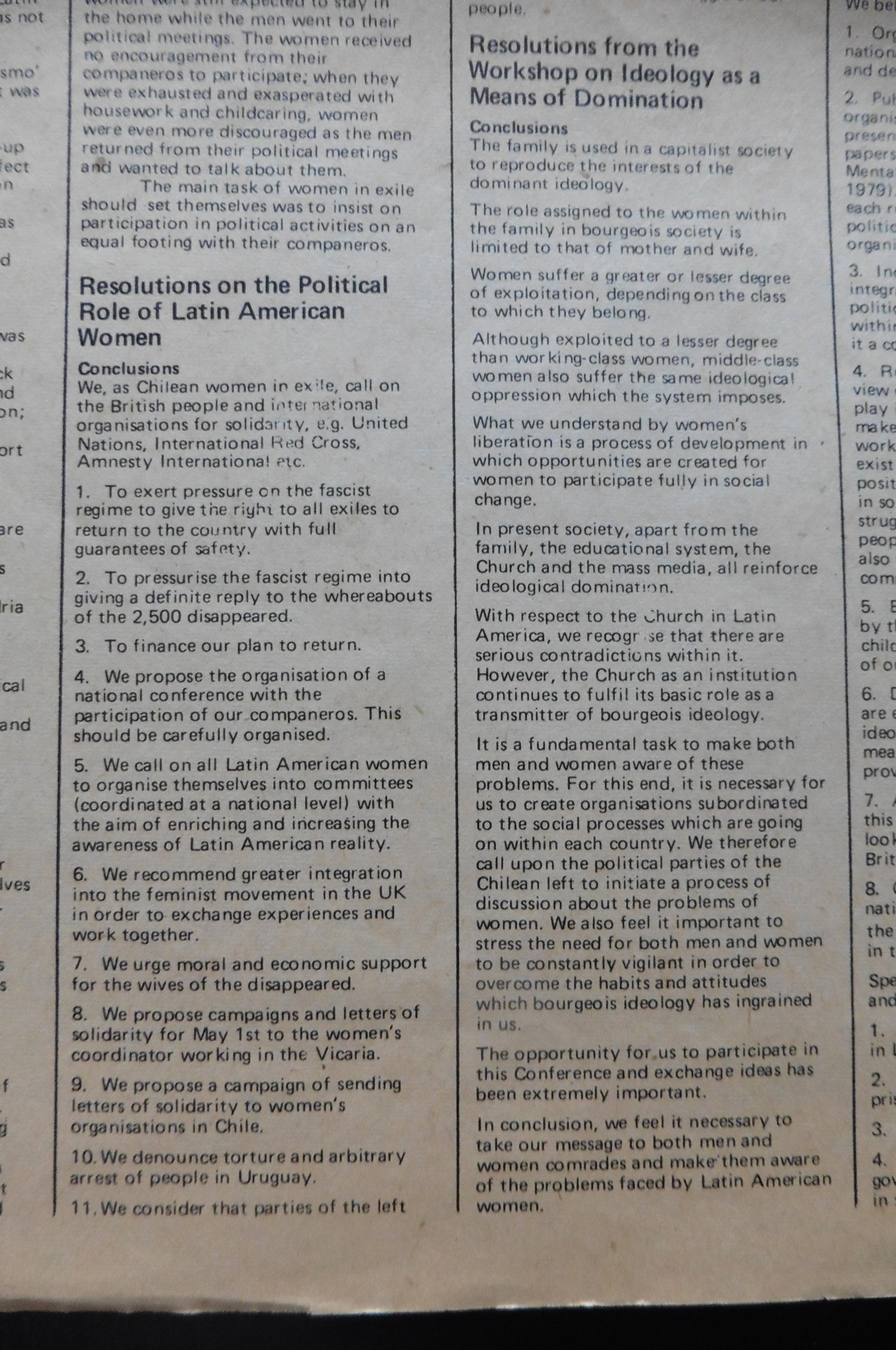
Chilean Poetry of Exile
Having survived violence and persecution, exiles then faced the pain of separation from Chile as well as adjusting to life in Britain. Many wrote about their refugee experiences. They organised, studied, campaigned, and built lives, contributing enormously to British society as teachers, engineers, human rights activists, local councillors, doctors, scientists and more.
María Eugenia Bravo Caldera came to Britain in 1975 as a refugee on a WUS scholarship. Her poetry offers a powerful perspective on the experience of the coup, the violence of the dictatorship and its legacies, including exile. Click on the poem below to enlarge and read it. To learn more about María Eugenia’s experiences, you can also read her testimony.
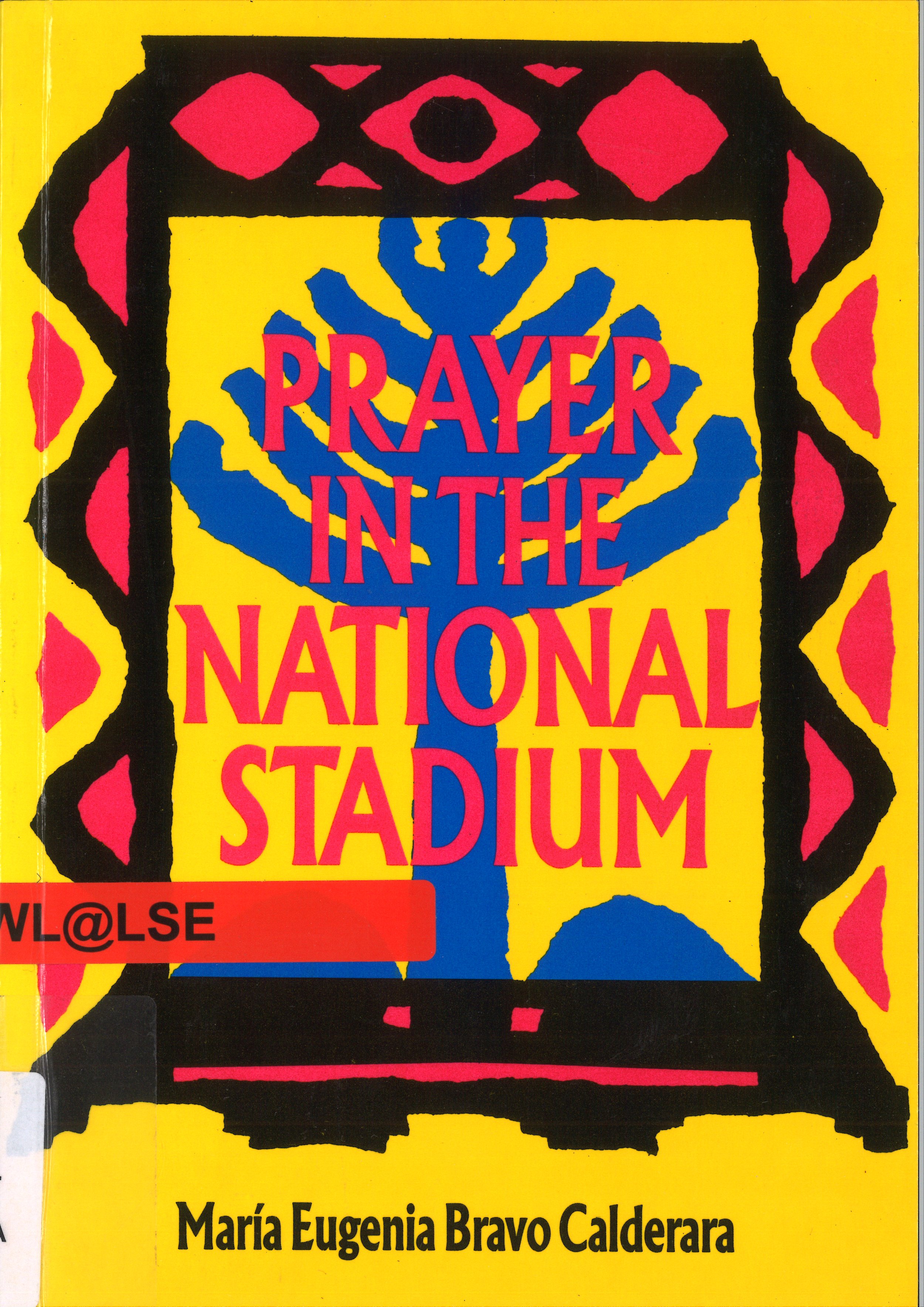
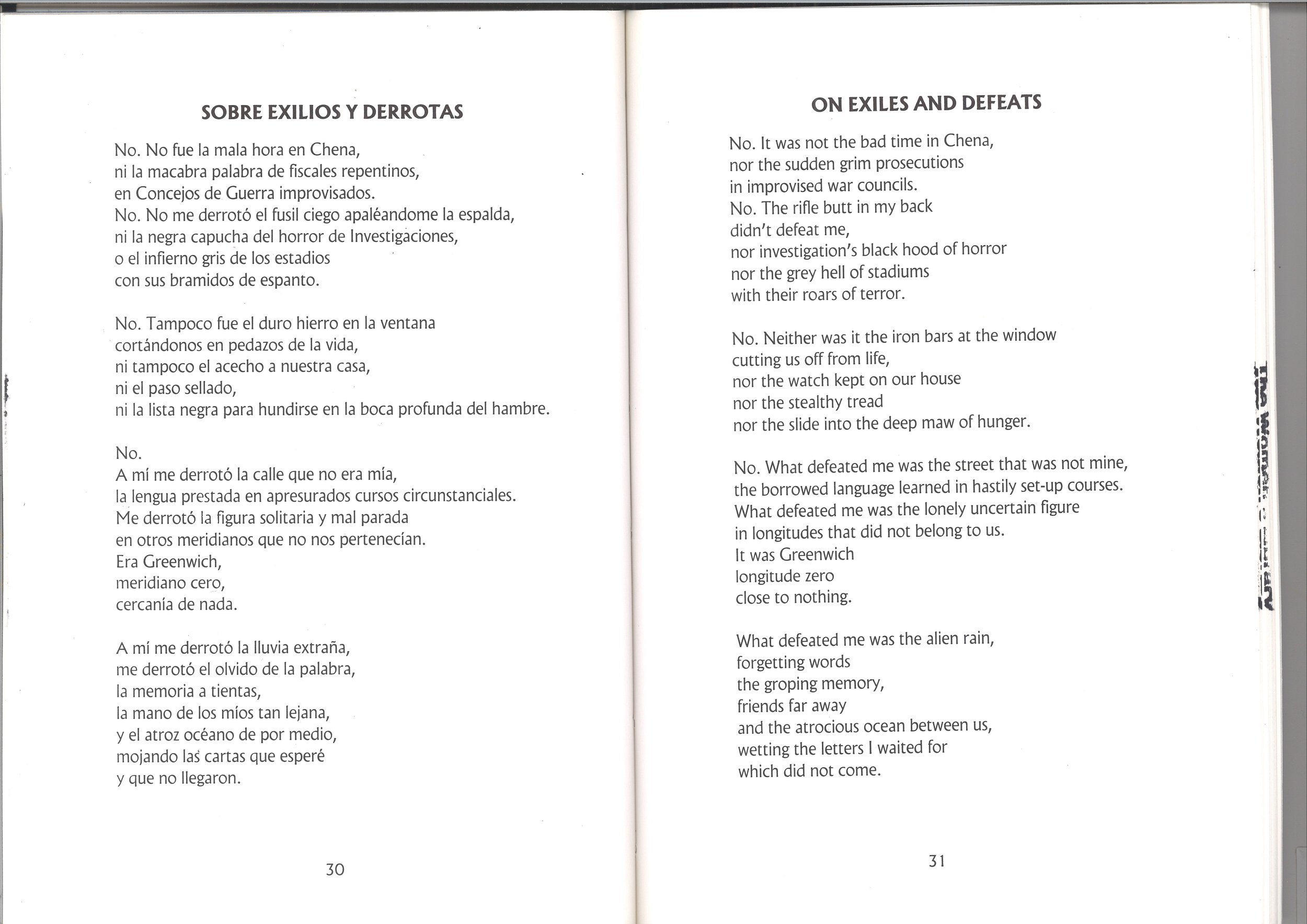
Mauricio Redolés came to Britain in 1975, where he lived for ten years and where he published his first collections of poetry and songs. He has written extensively about exile and life in Britain as a refugee. One of his most famous poems, tells the story of “Georgina” a Chilean exile in London resisting the dictatorship. You can listen to the poem recited by Redolés below.
Chileans in Britain on Film
The history of Chileans’ exile in Britain has been the subject of a. number of TV programmes and documentary films. Those below include a short film made by the Joint Working Group for Refugees from Latin America for the BBC in 1981 and “Hora Chilena: Chilean Time” (2013) directed and written by Kip Loads, Camila Iturra and Laurtaro Vargas.


